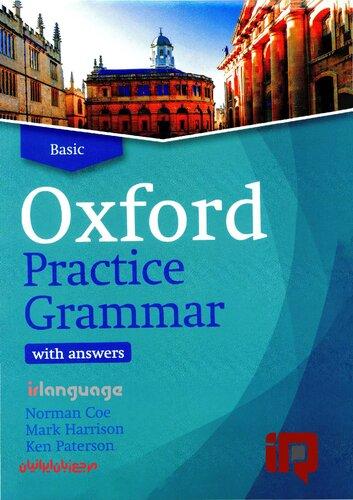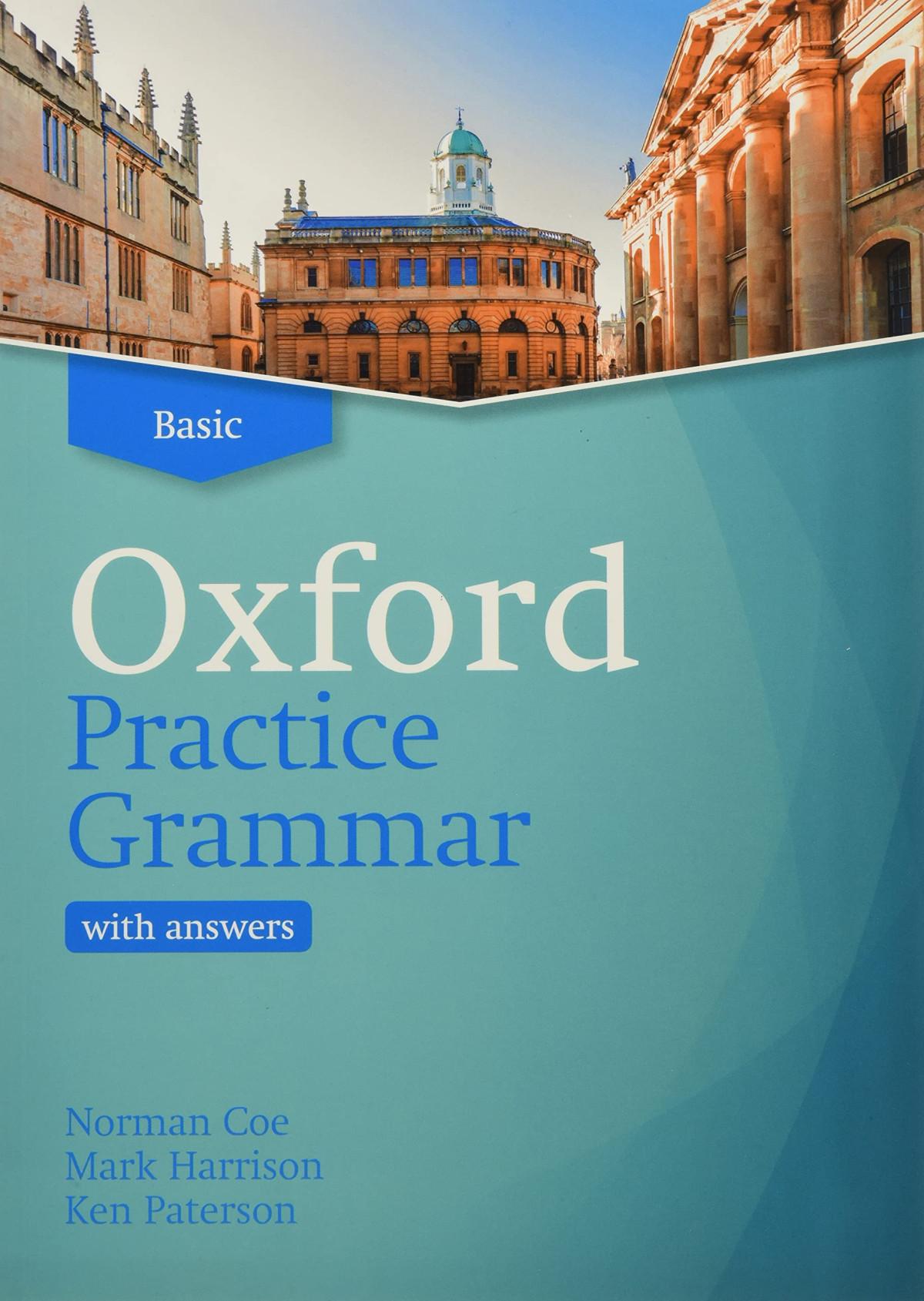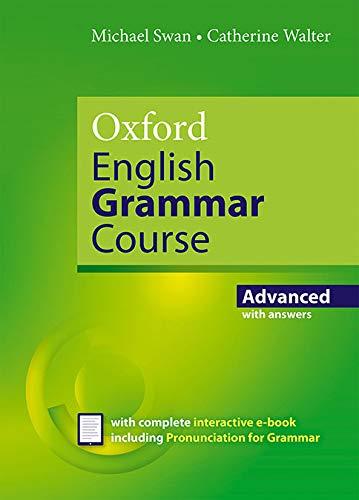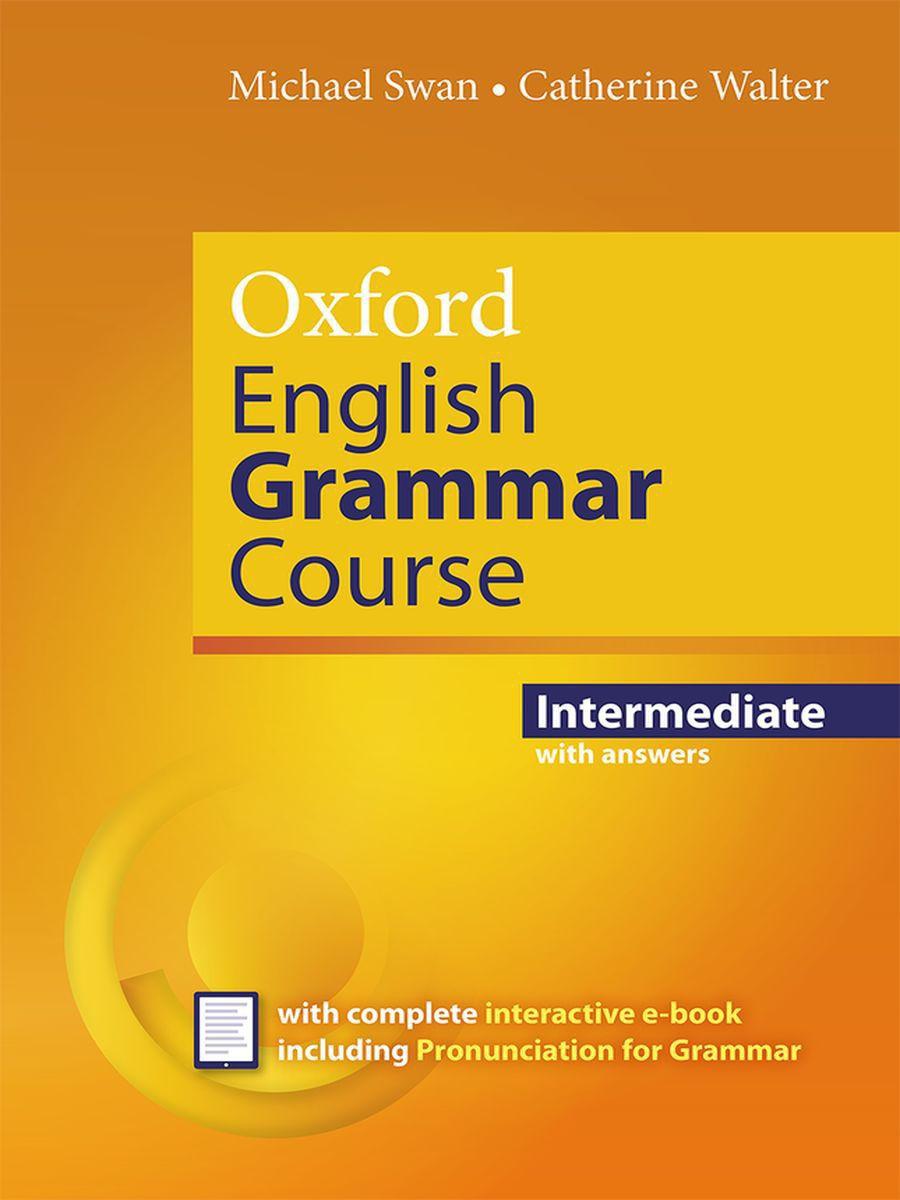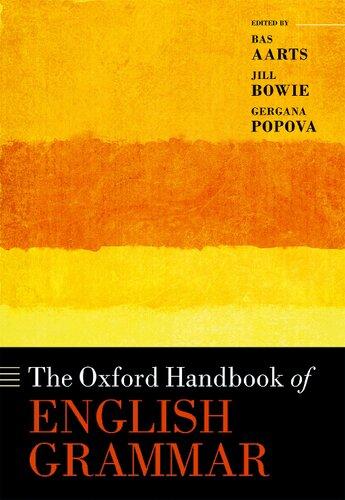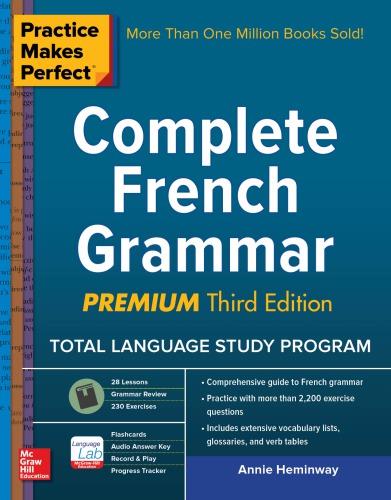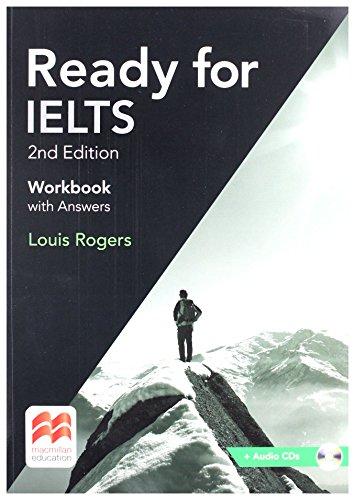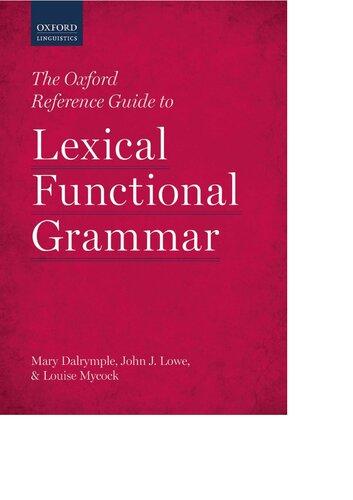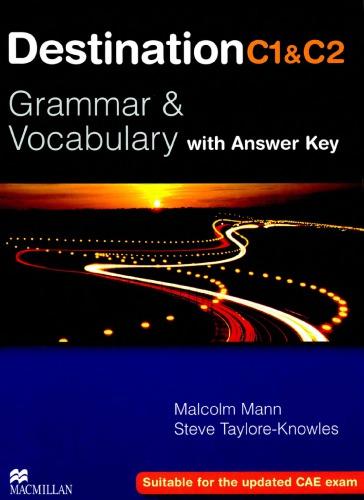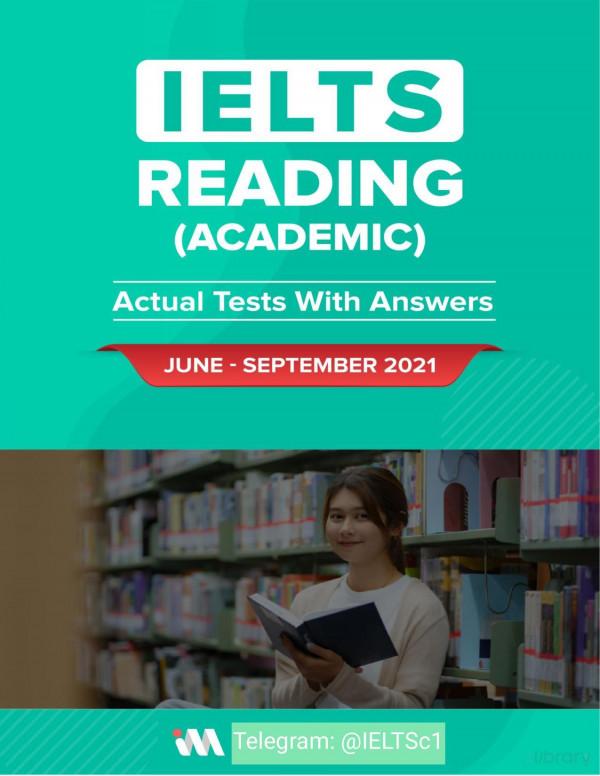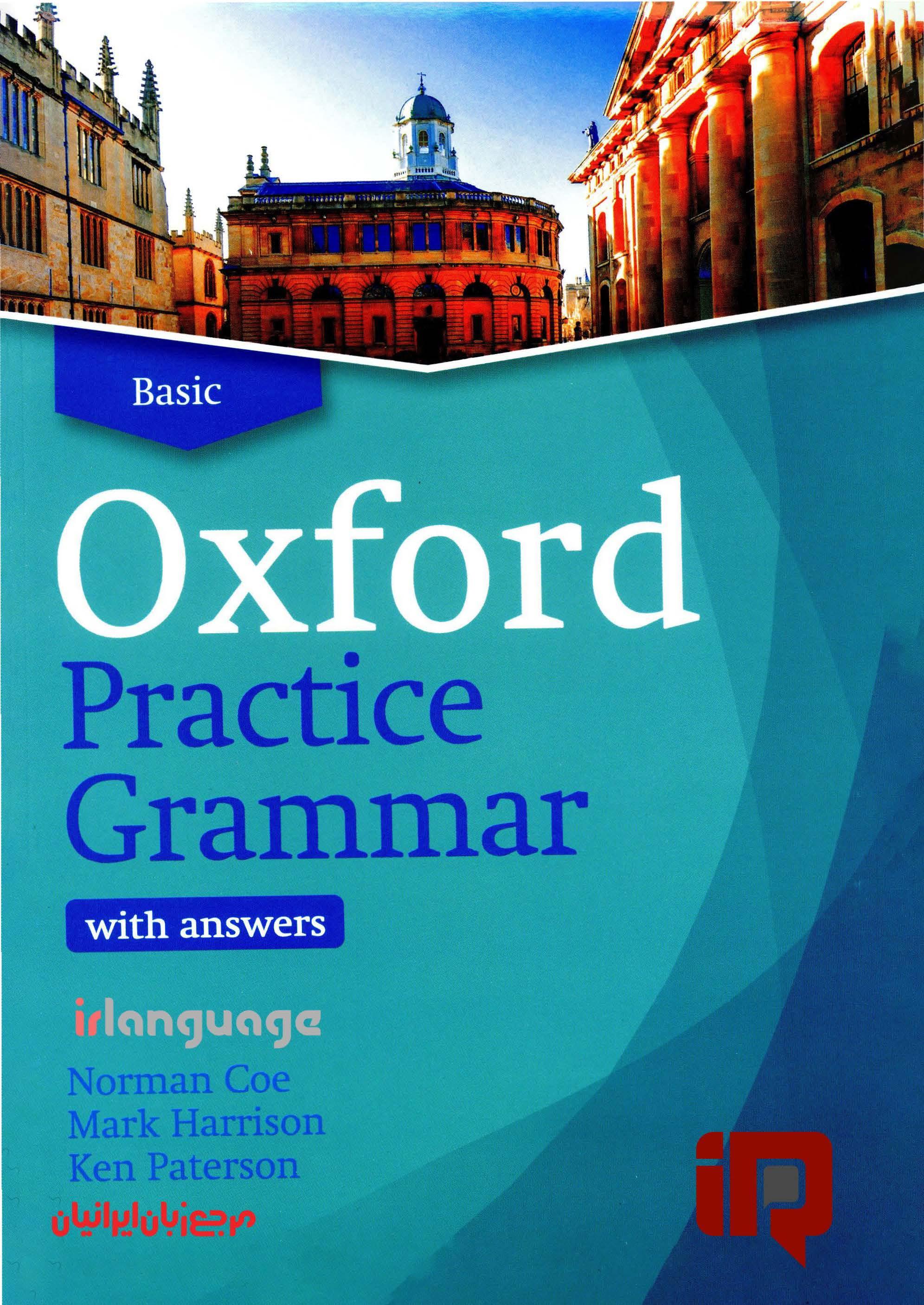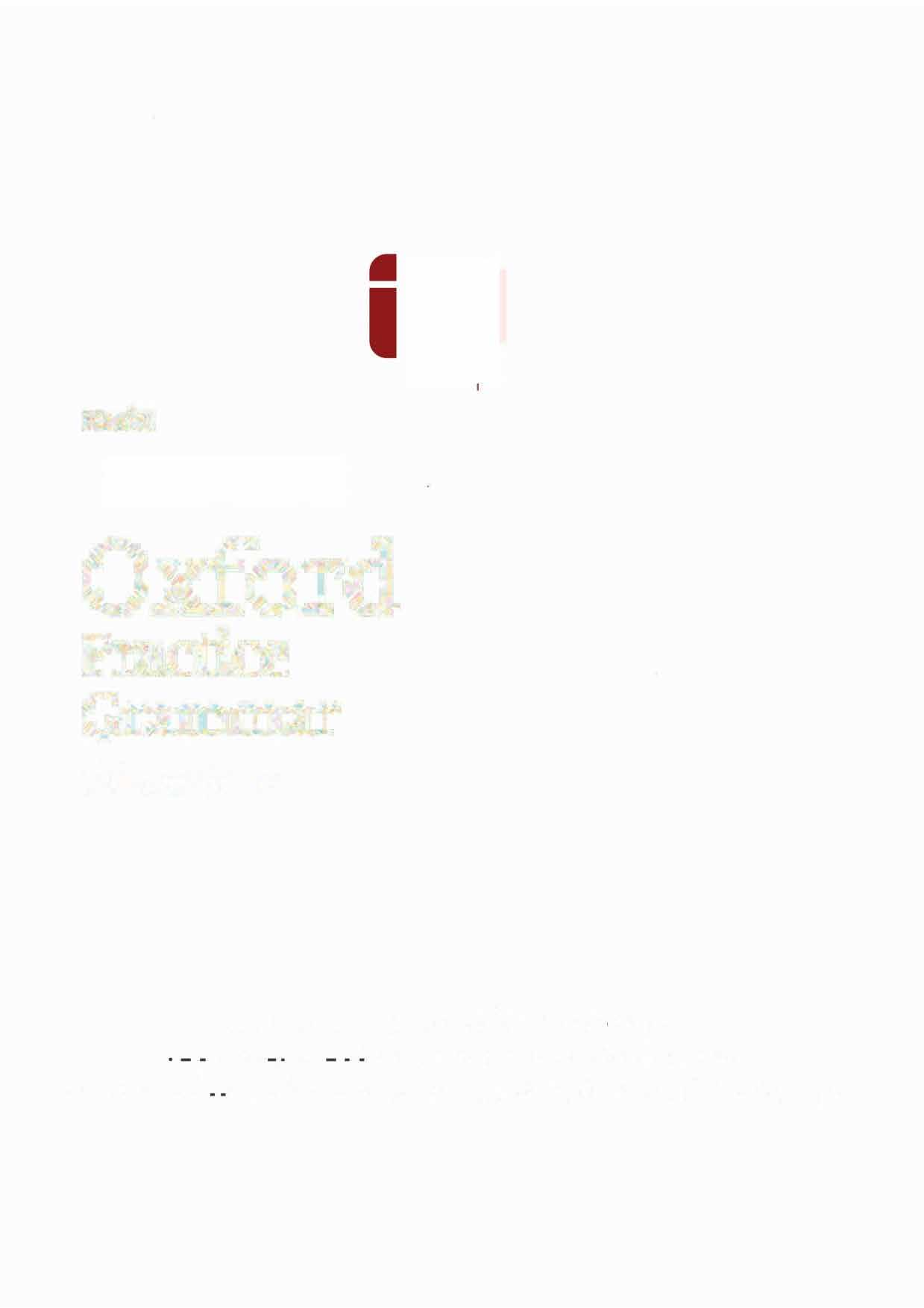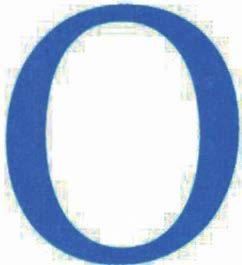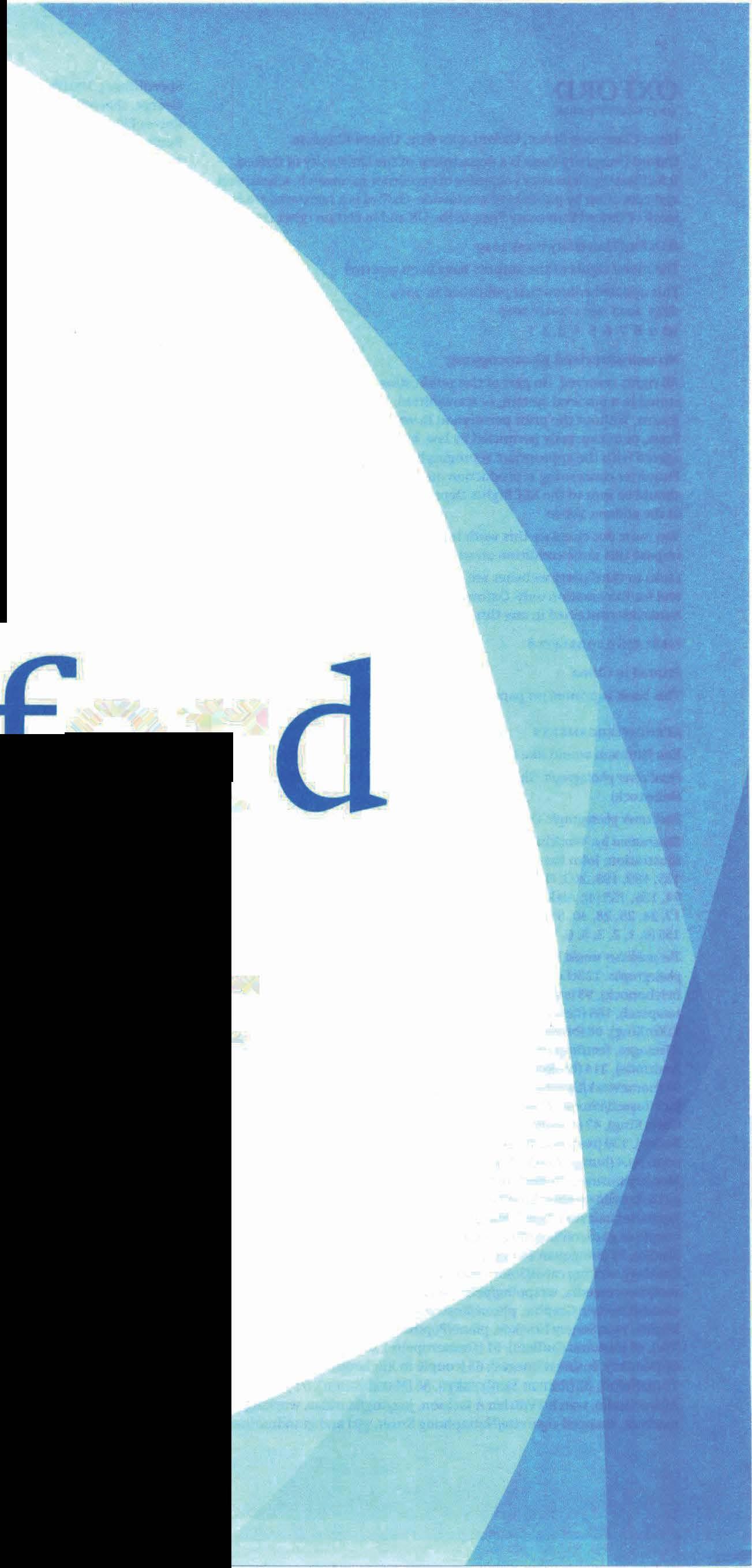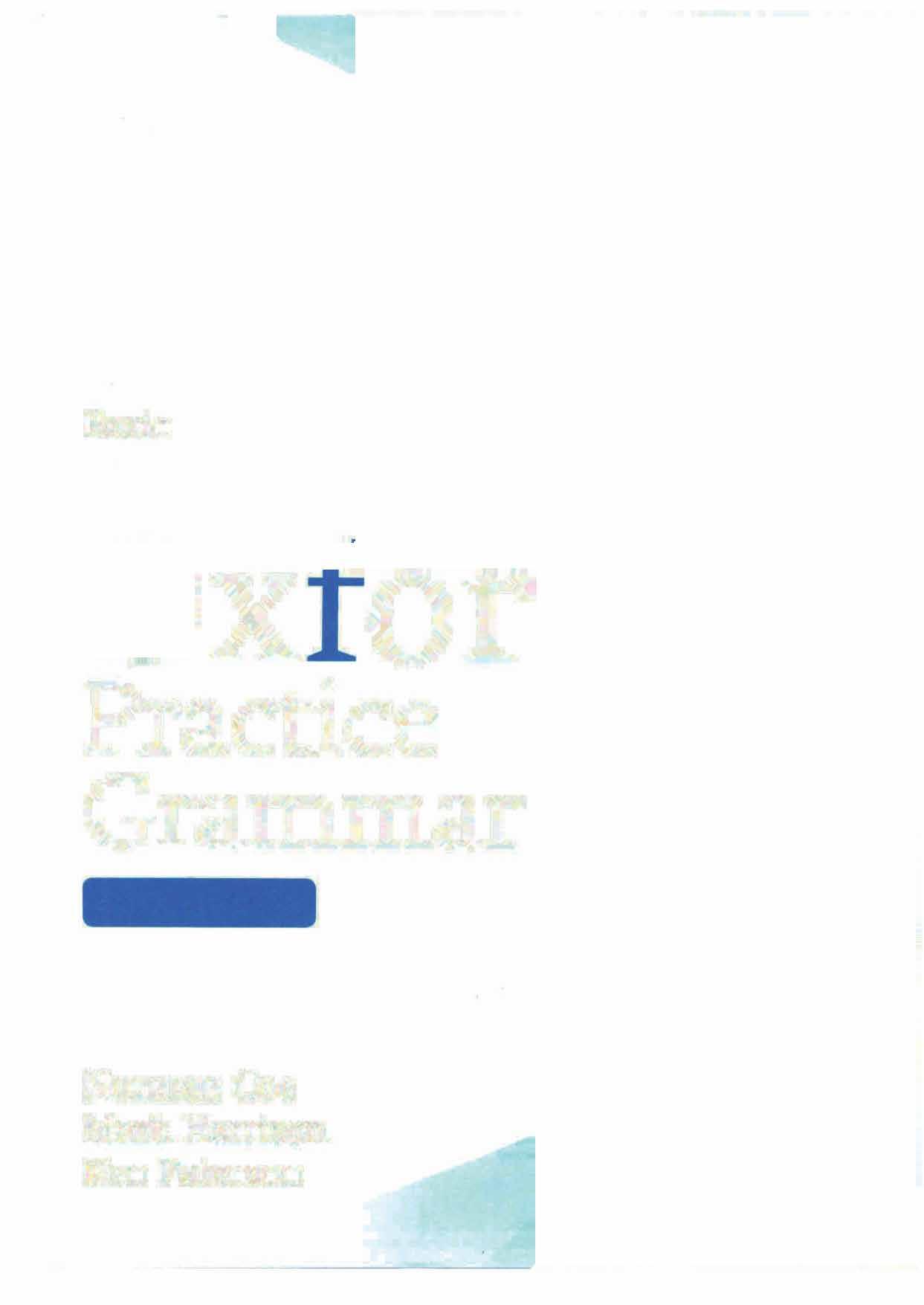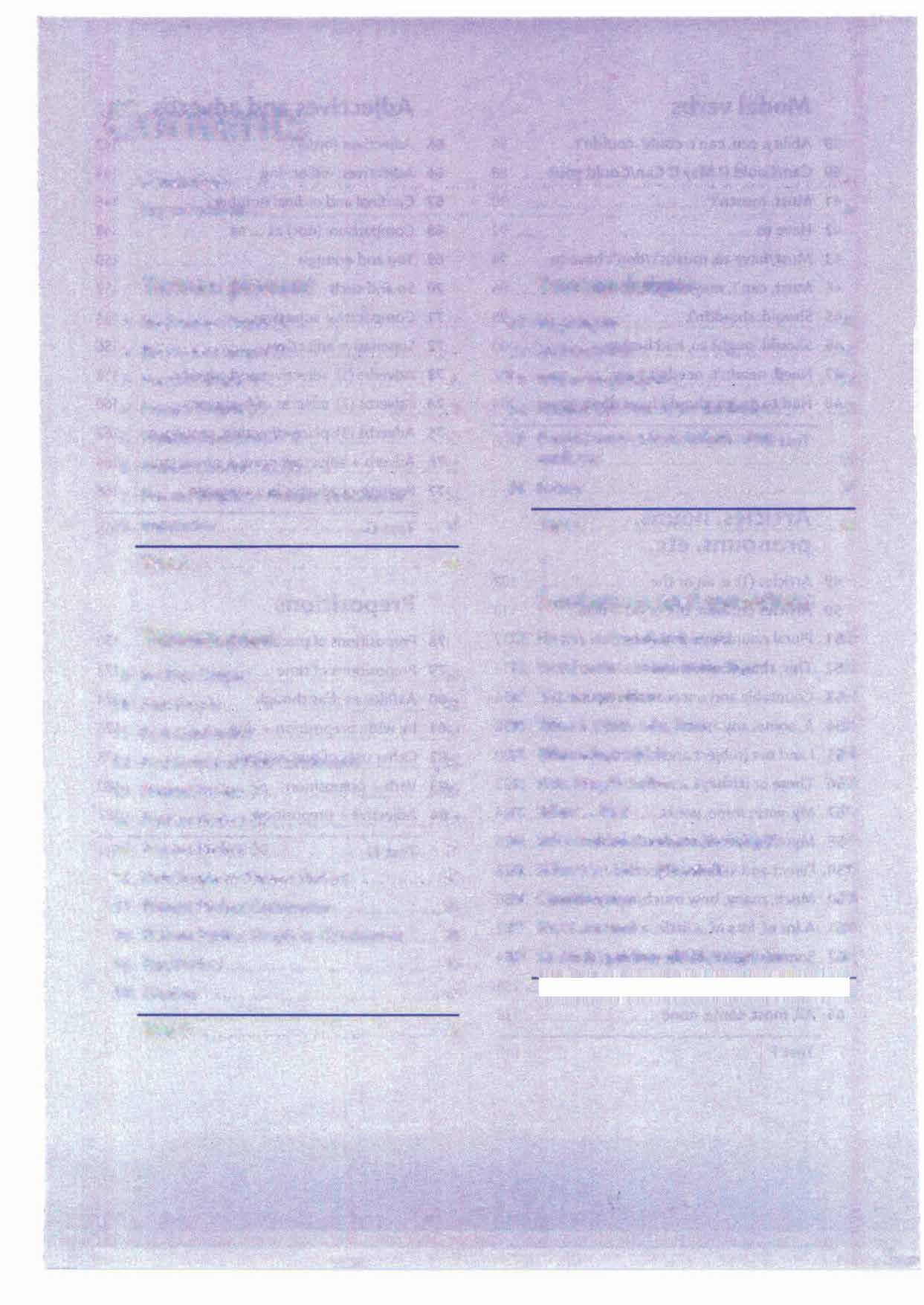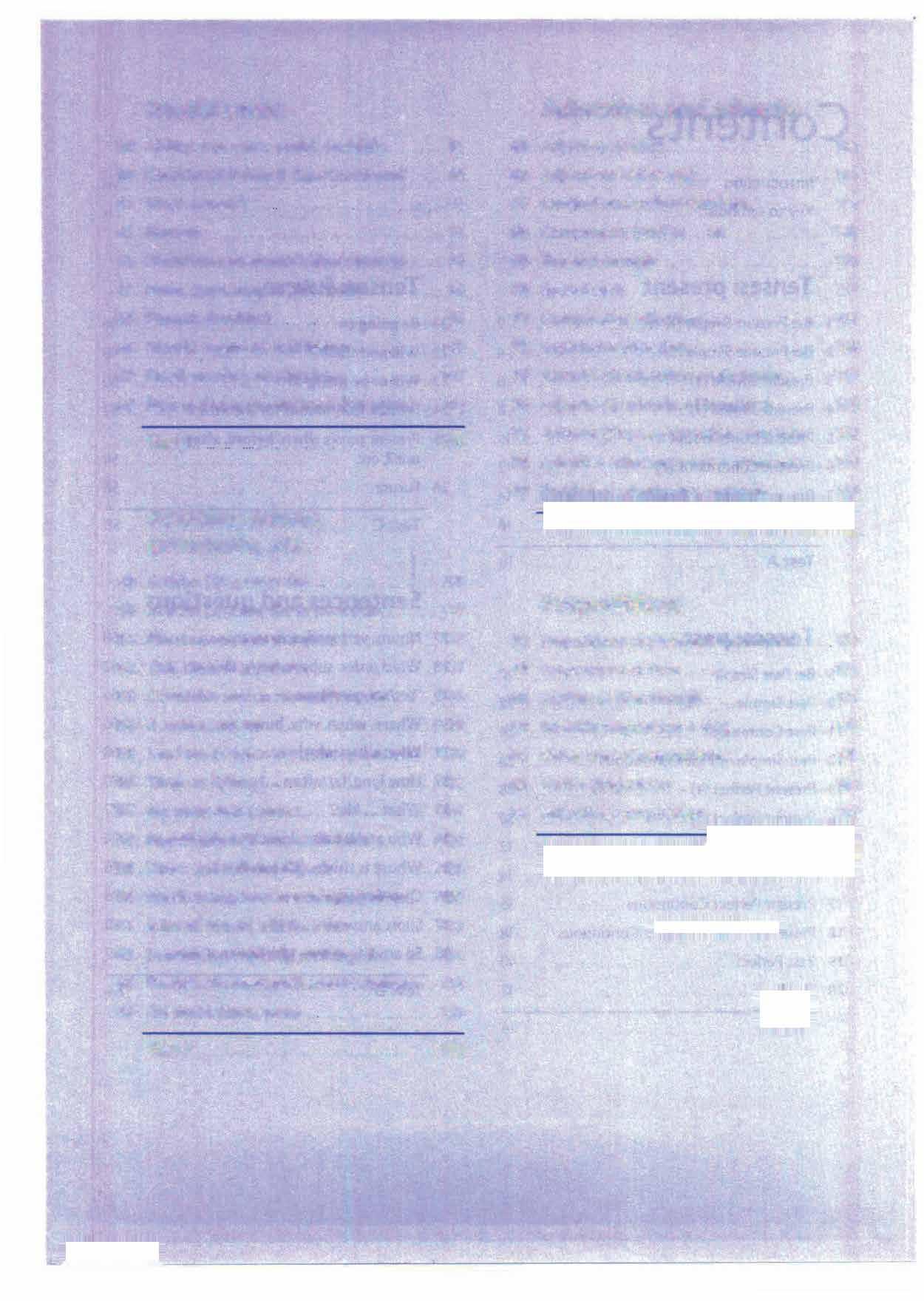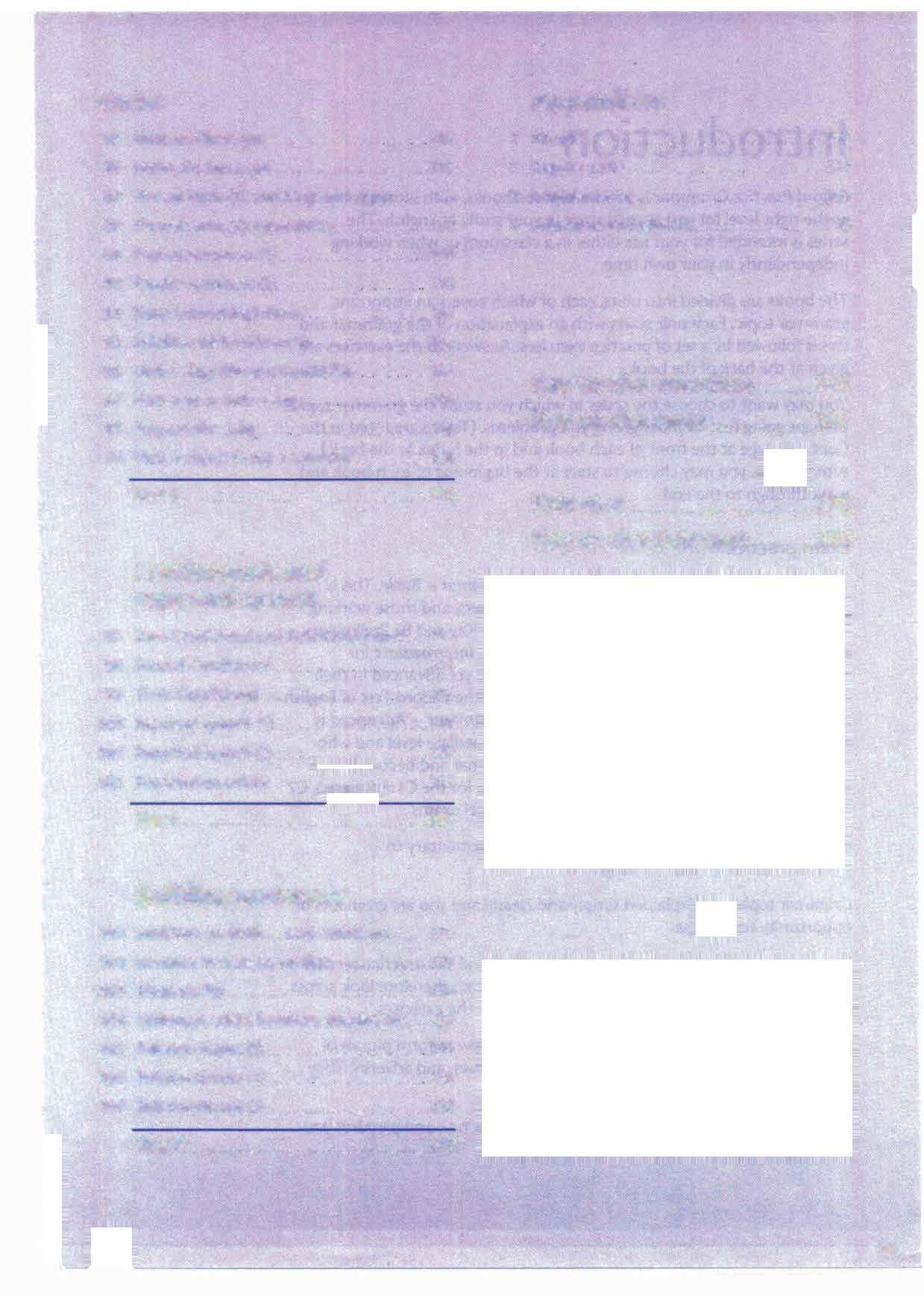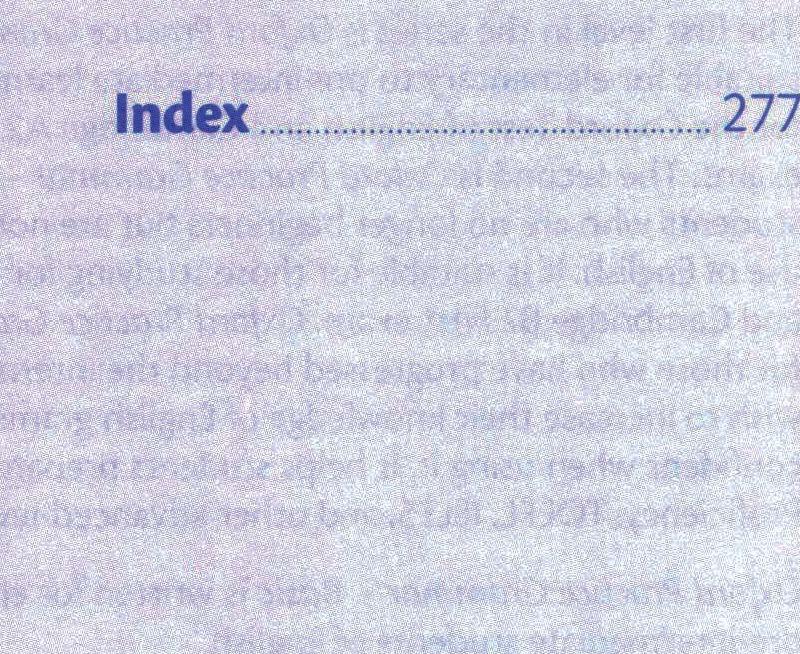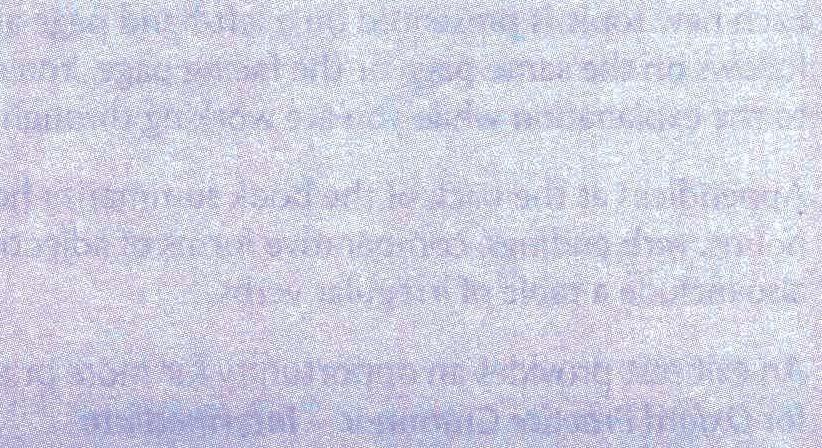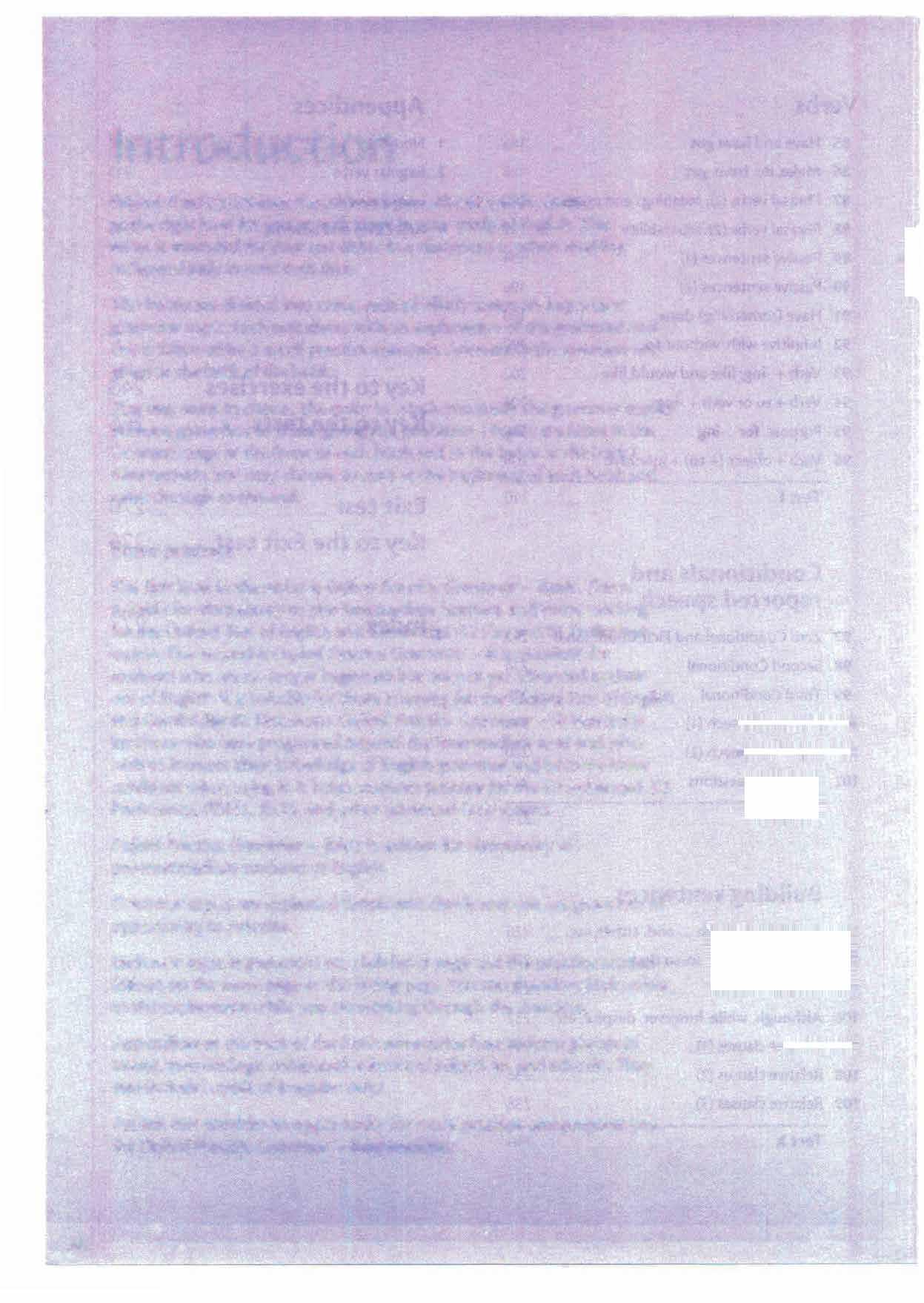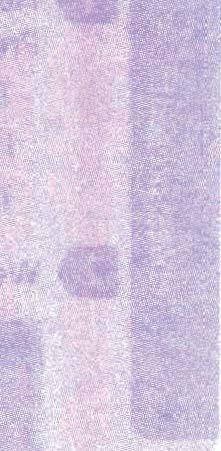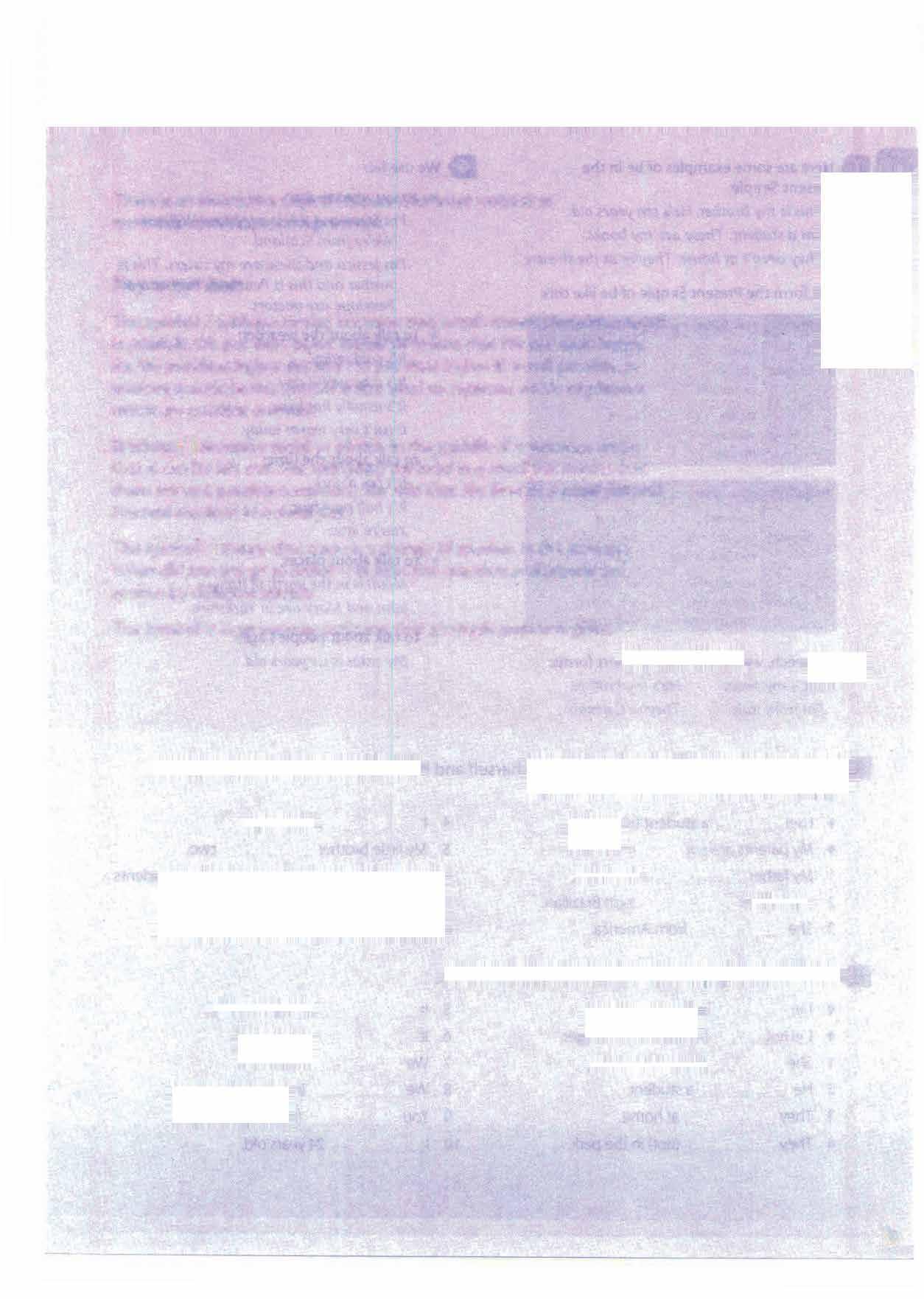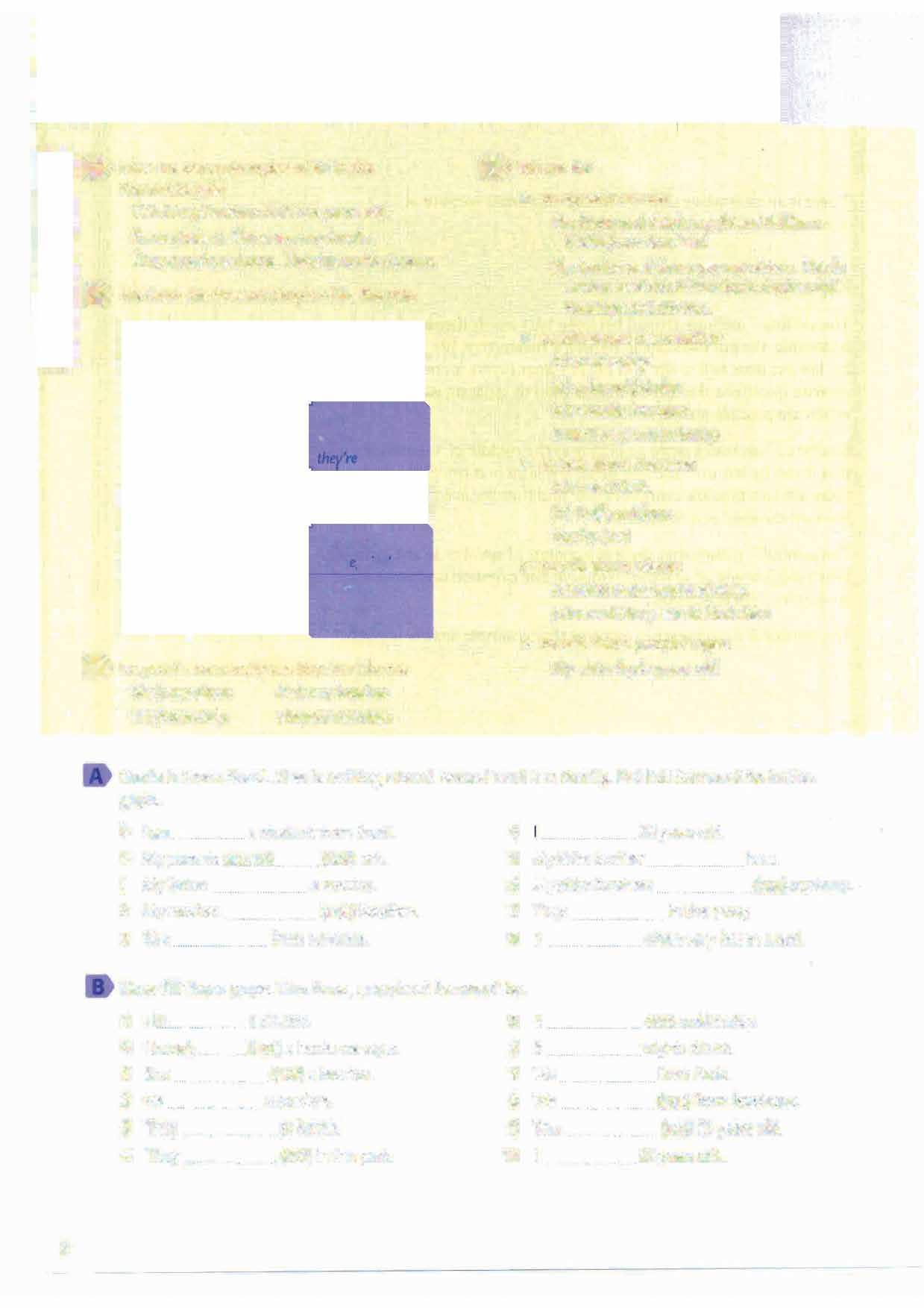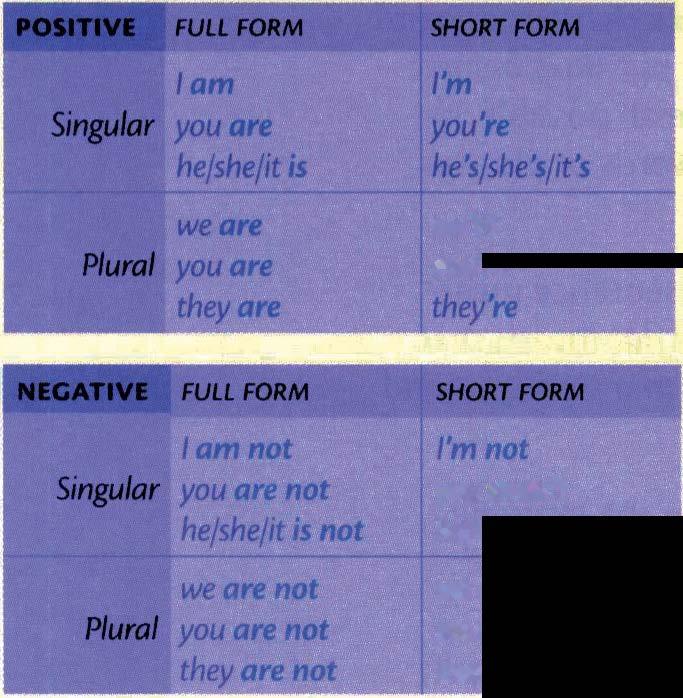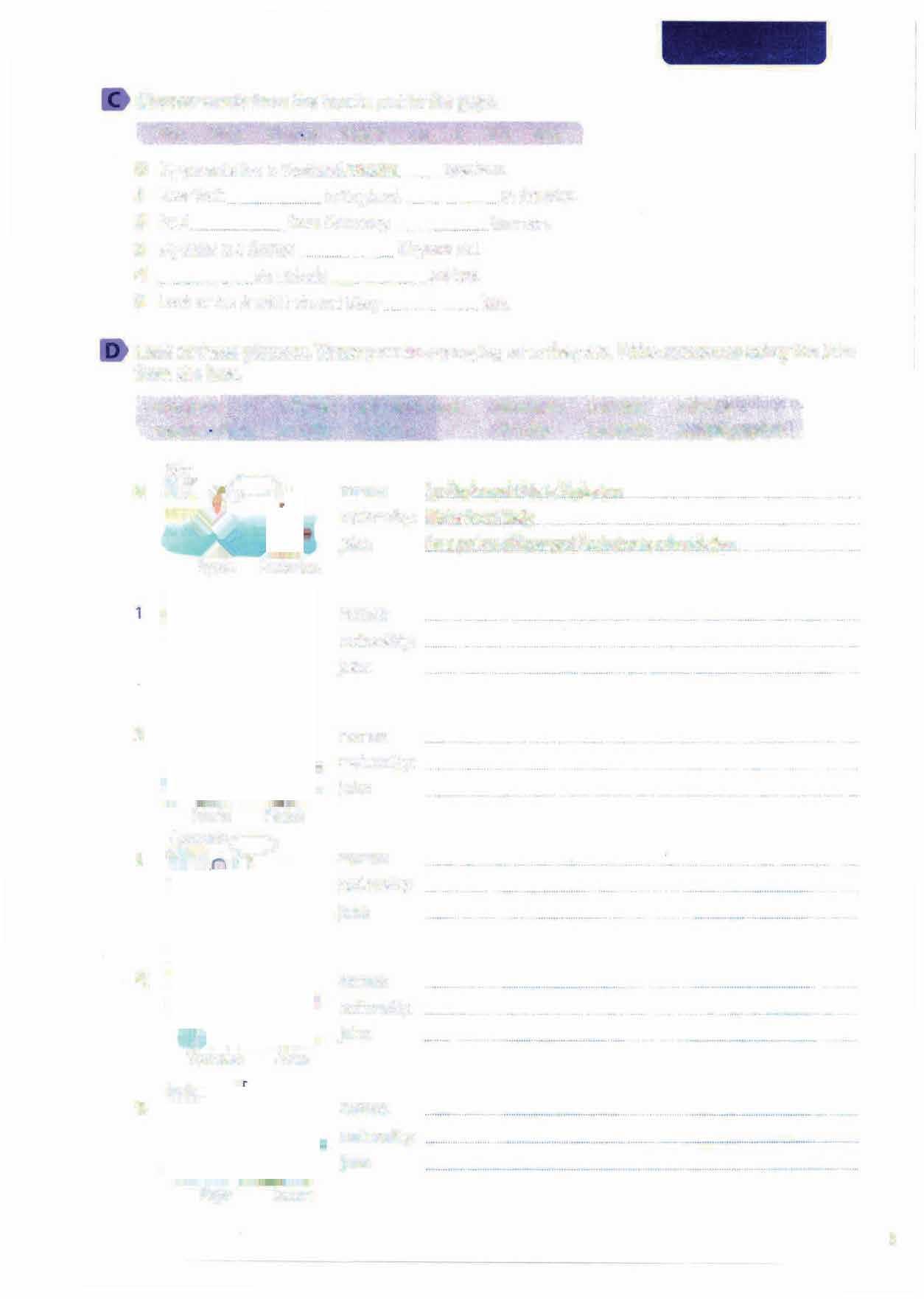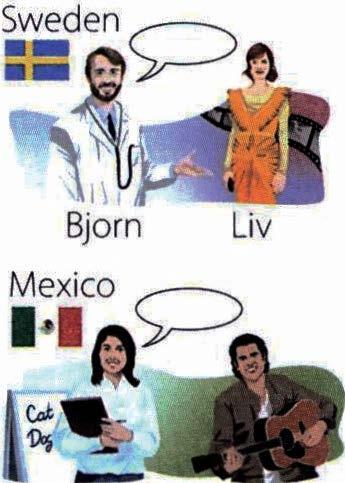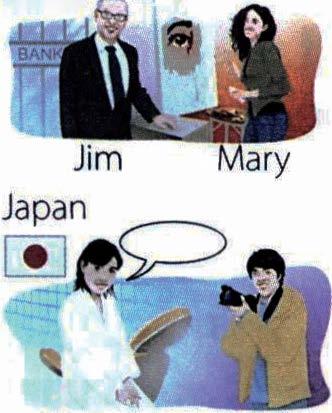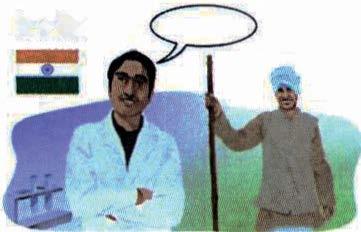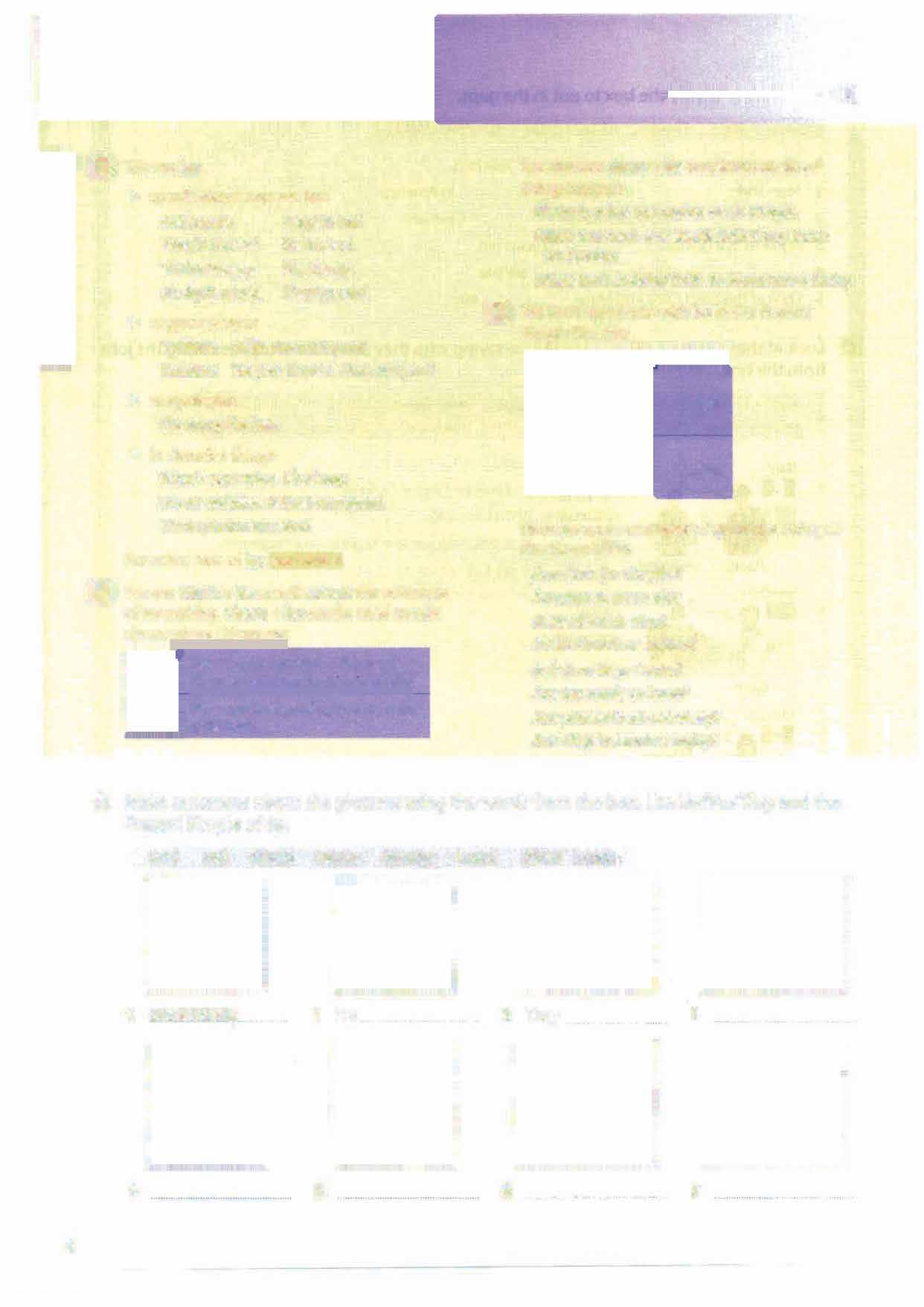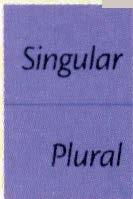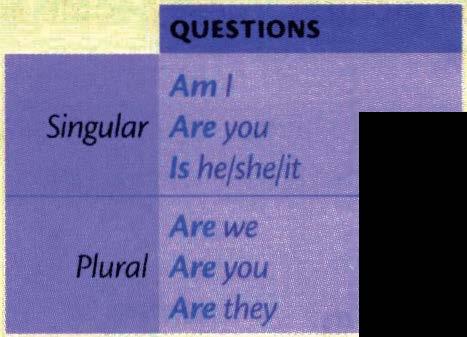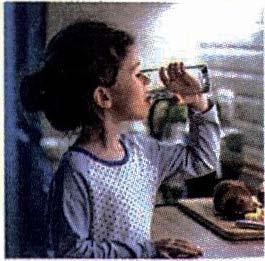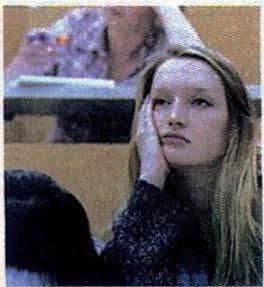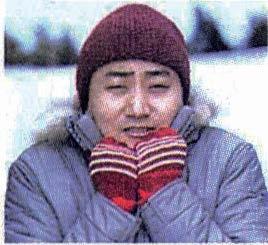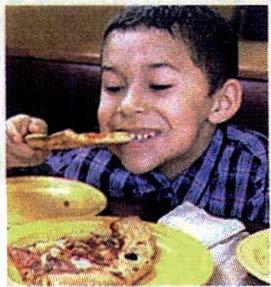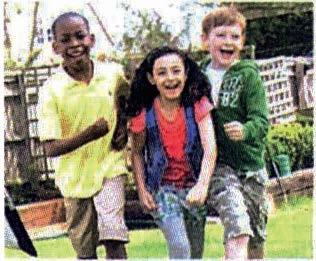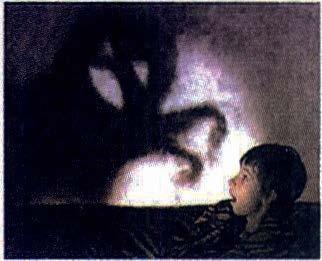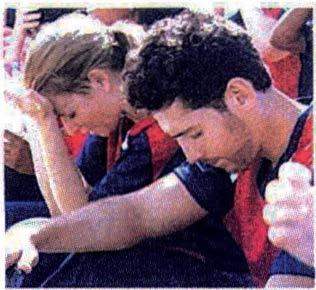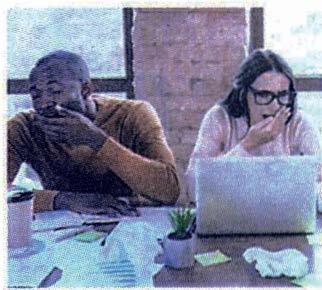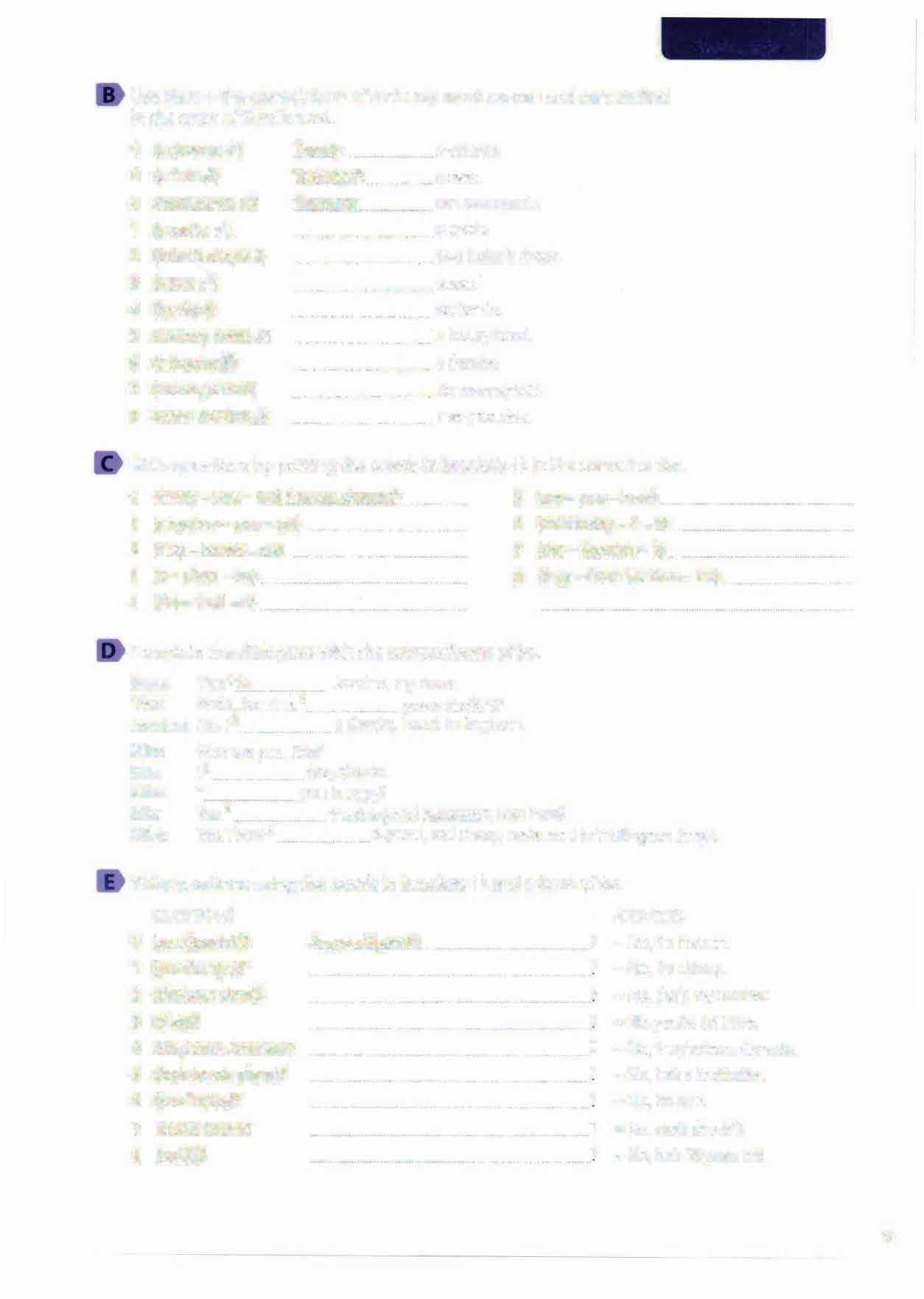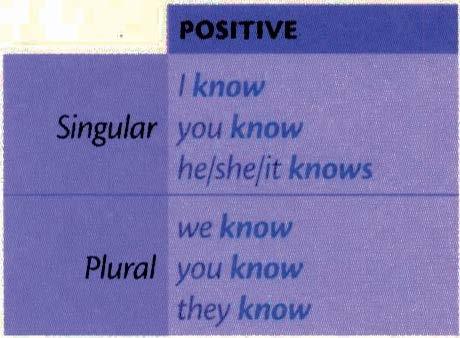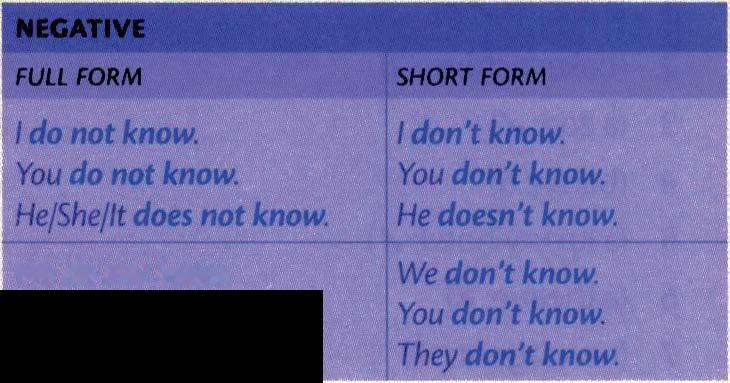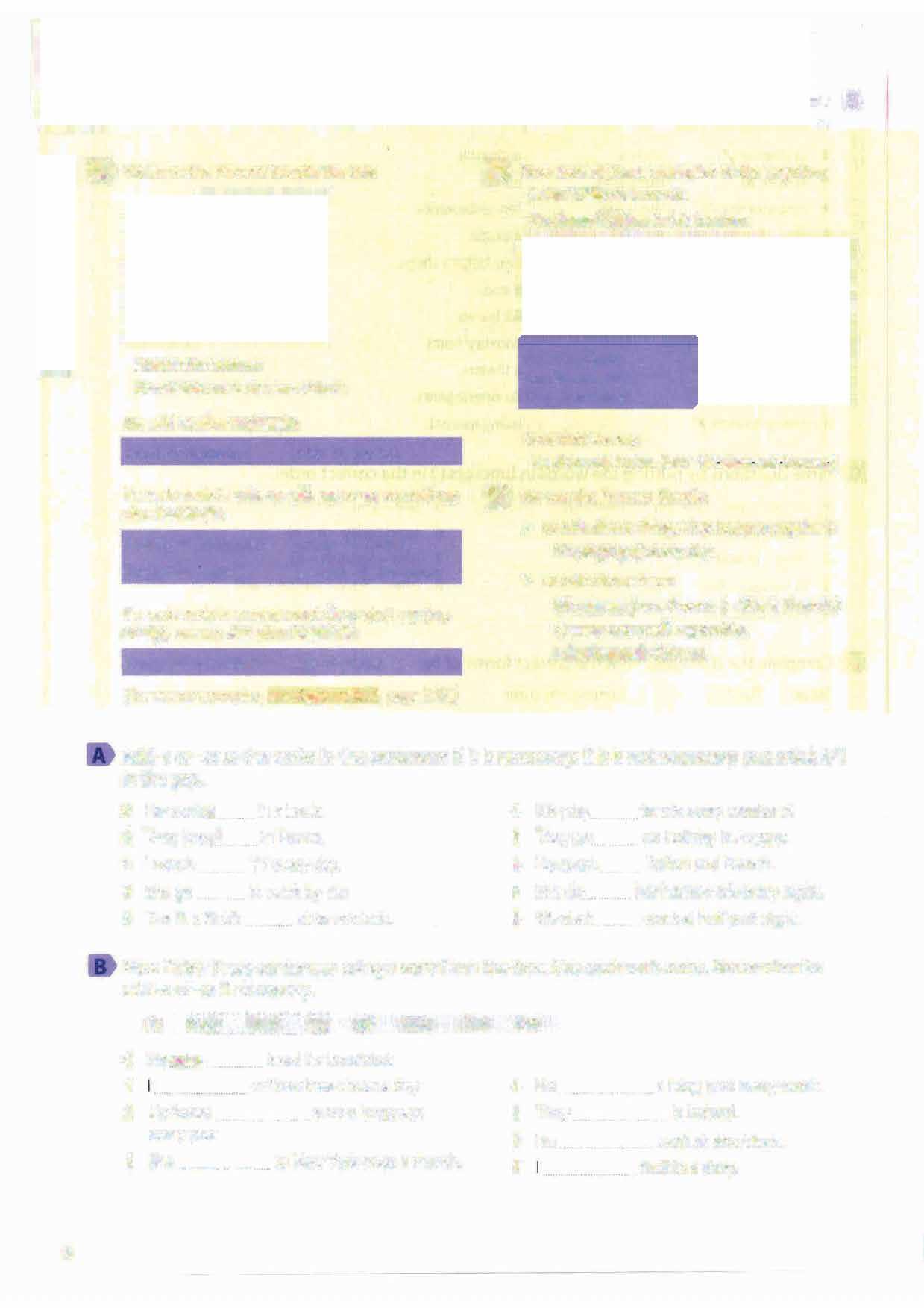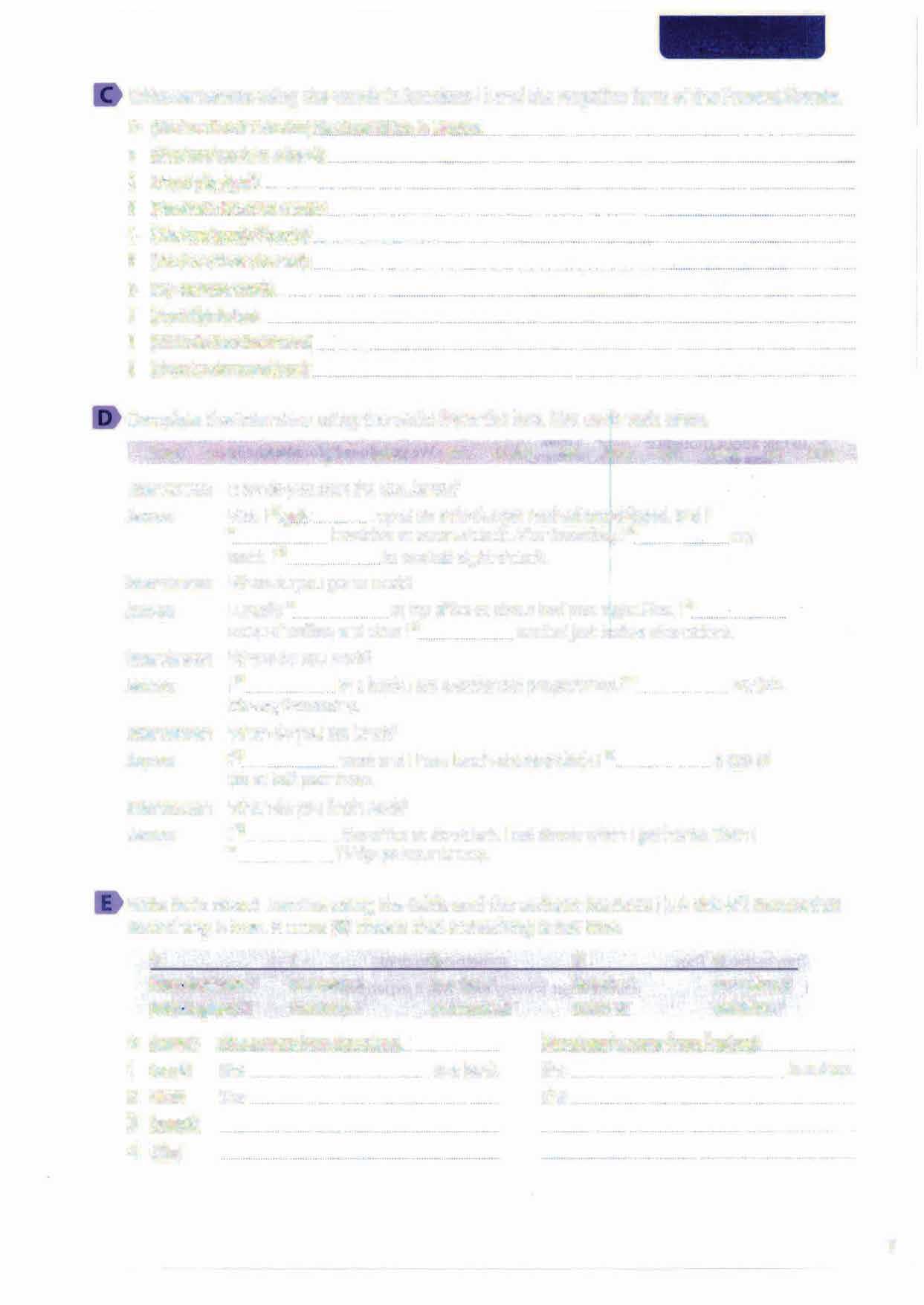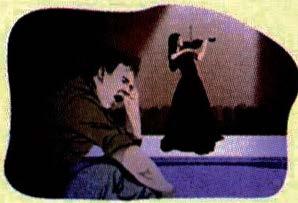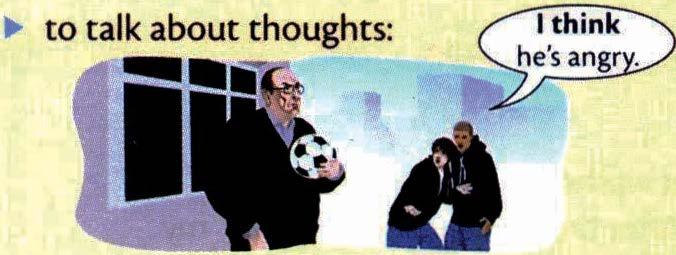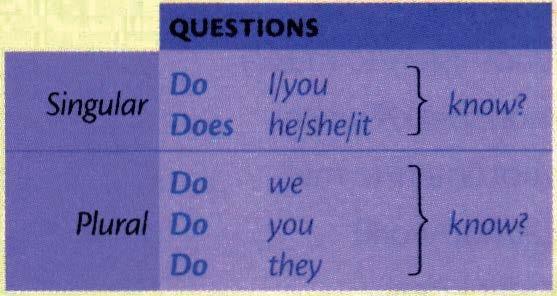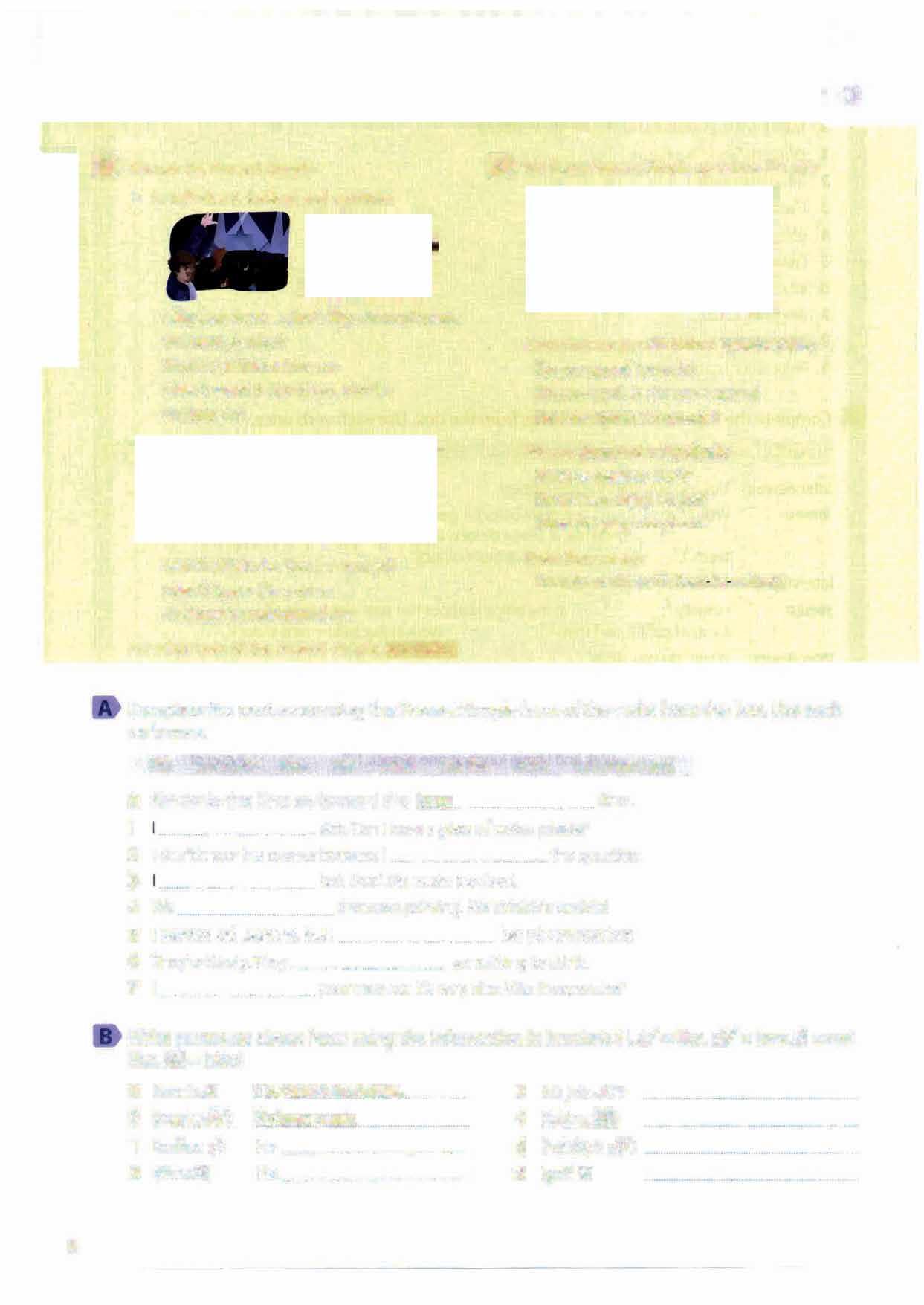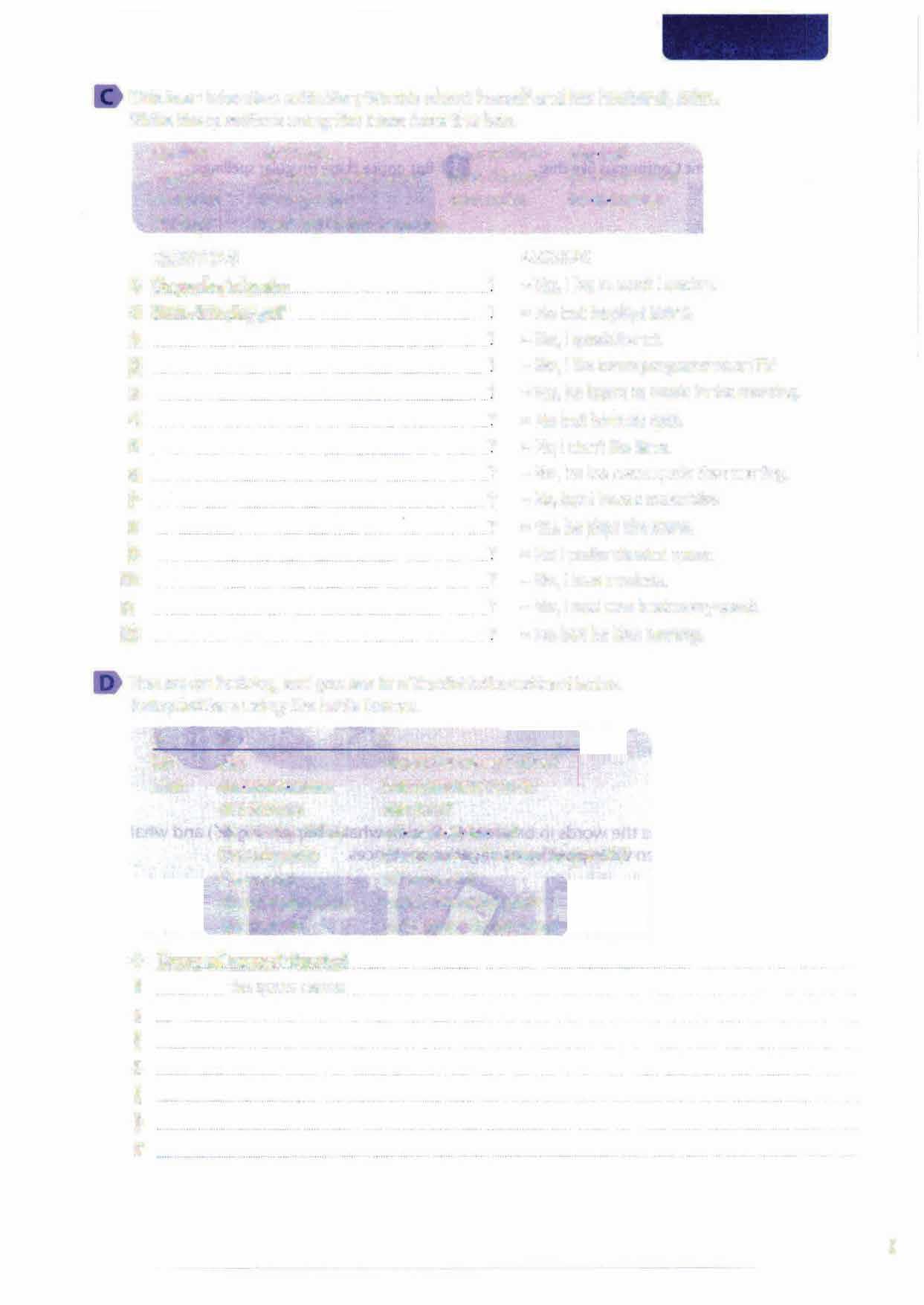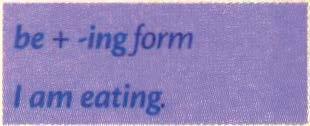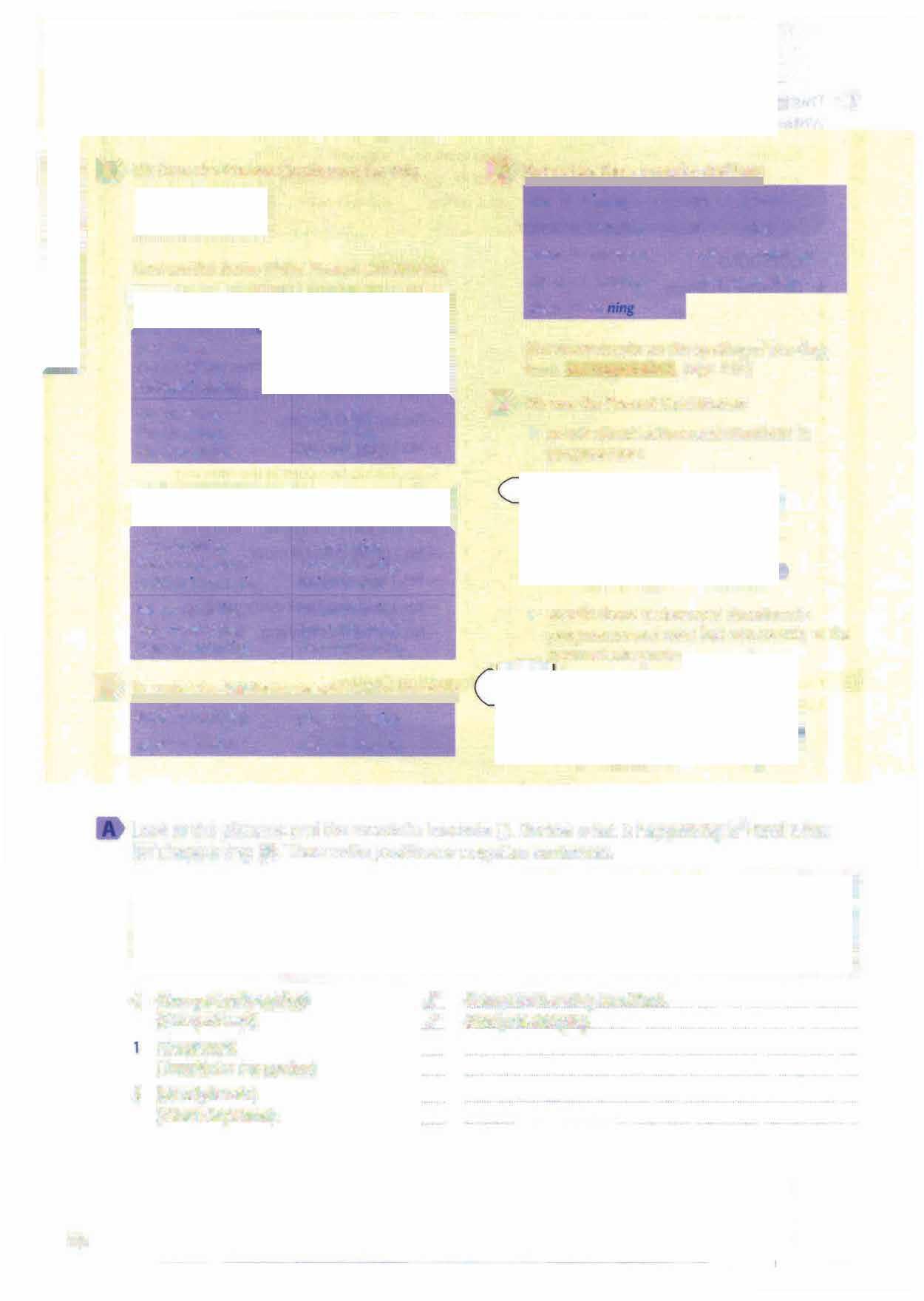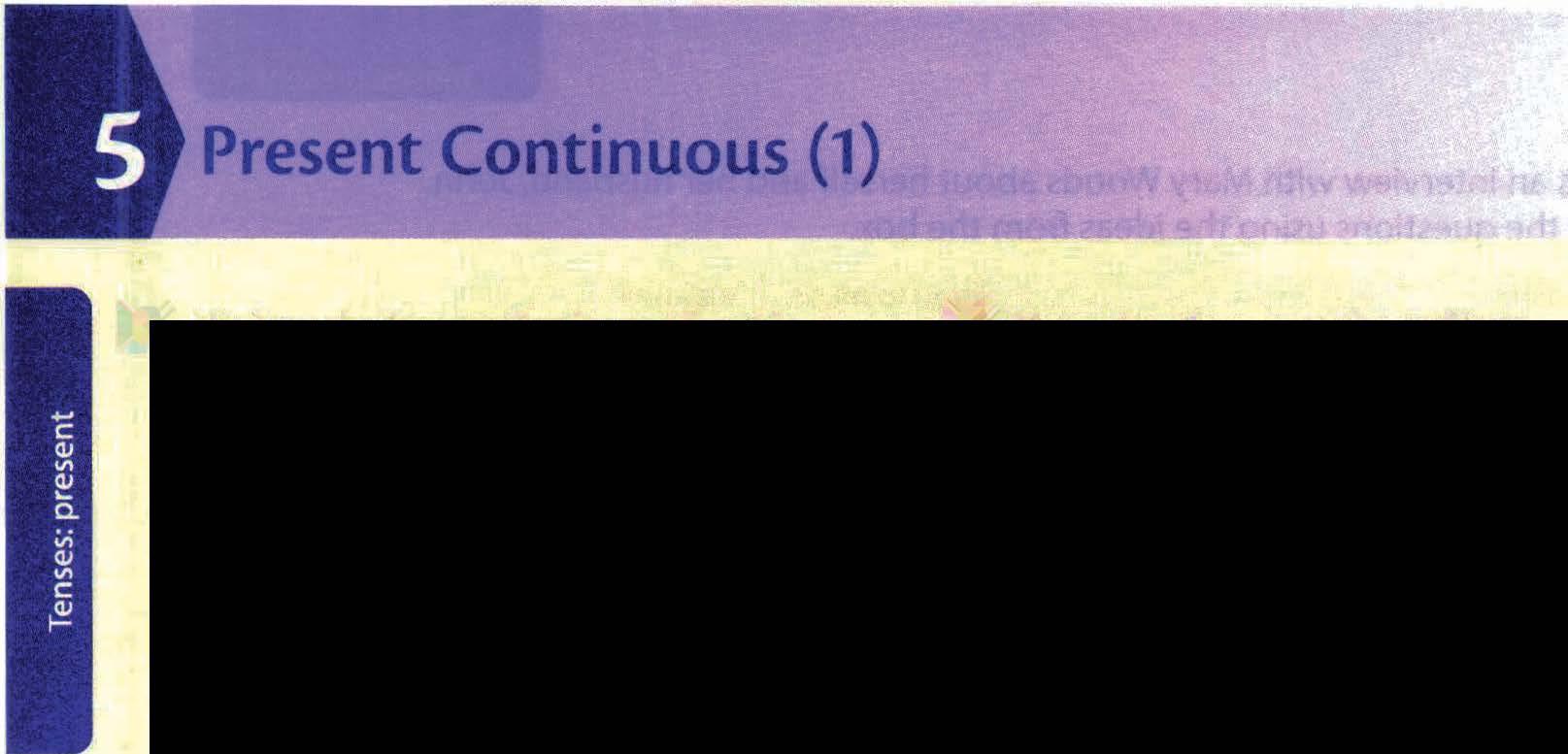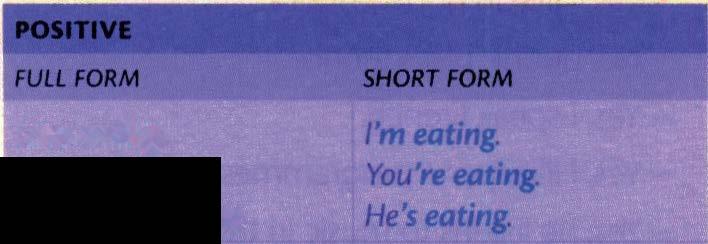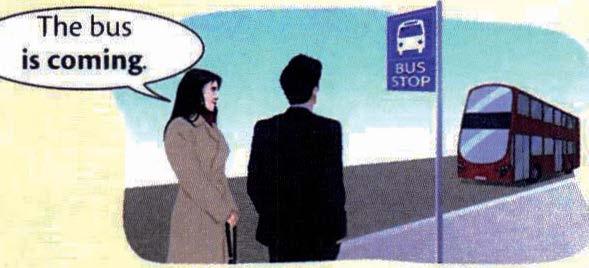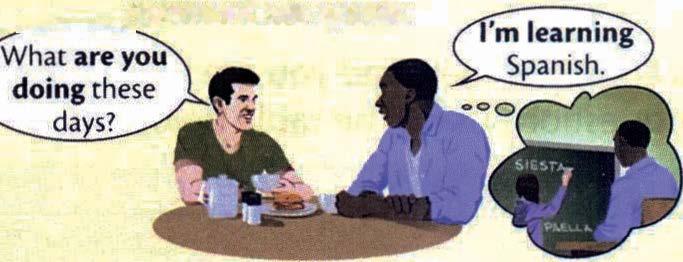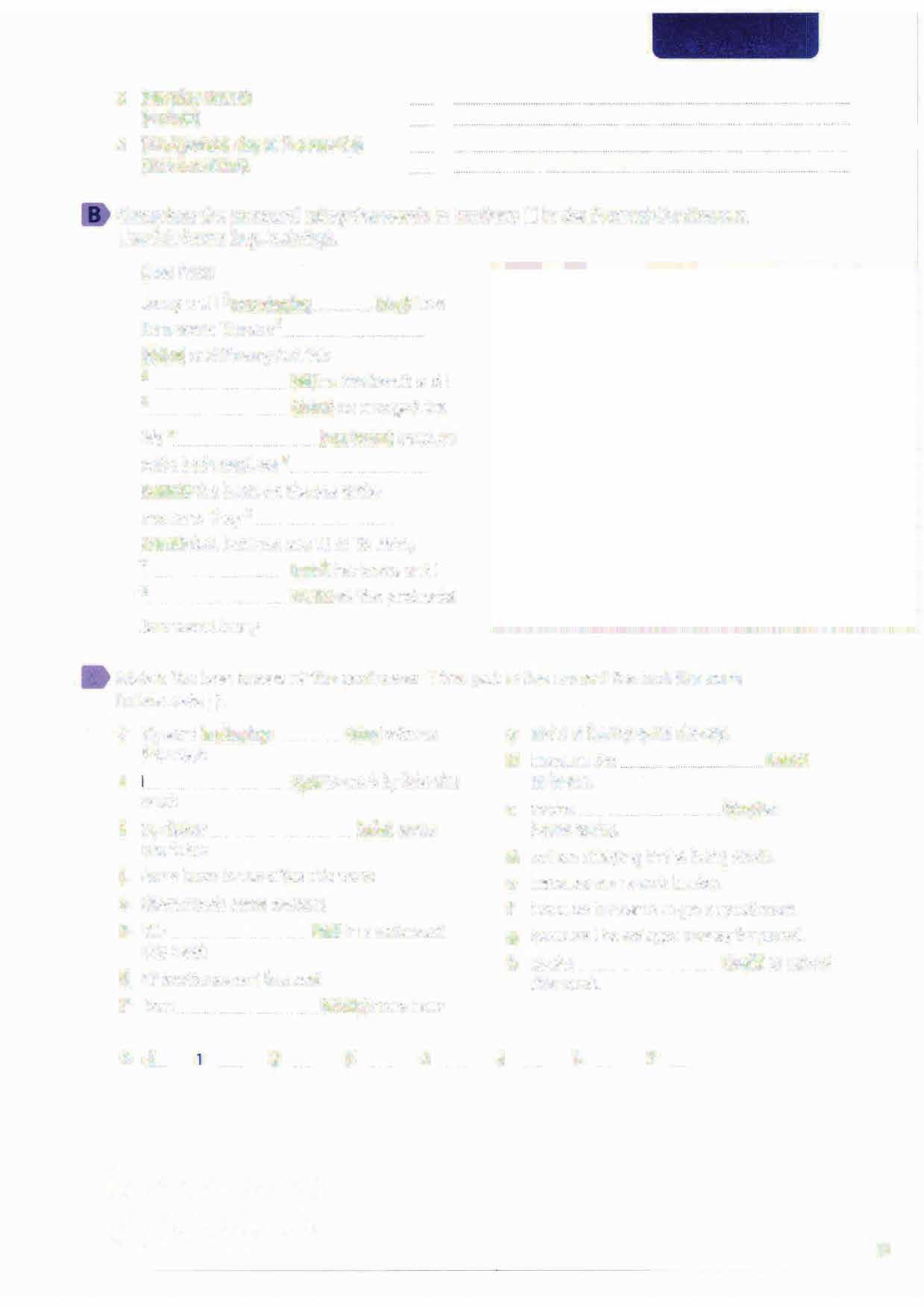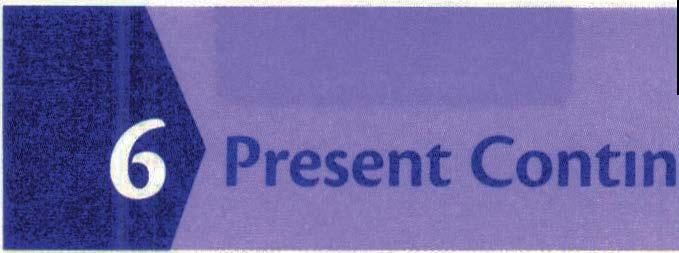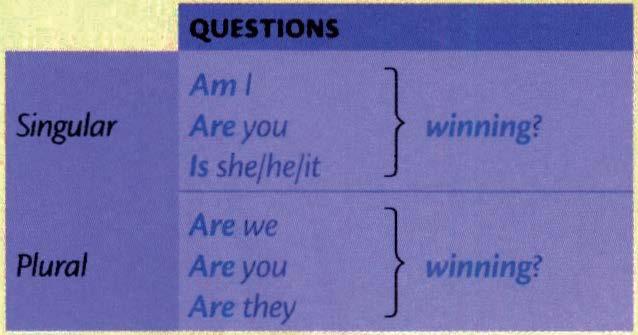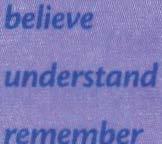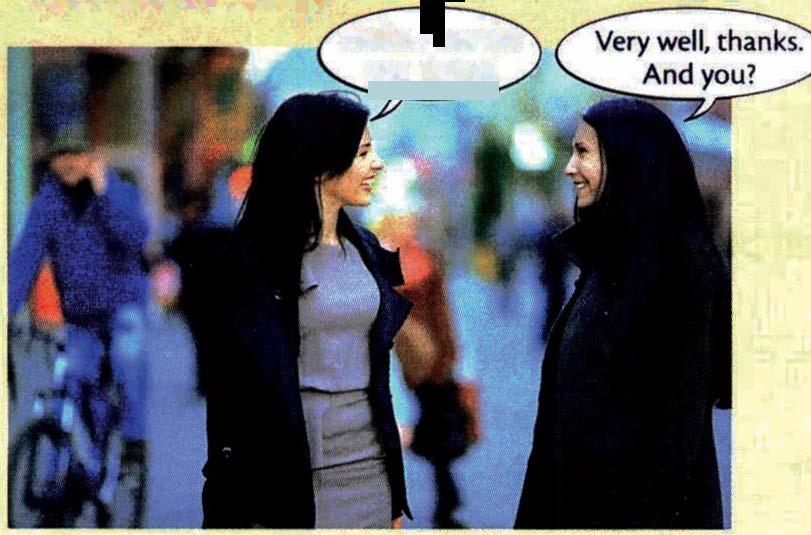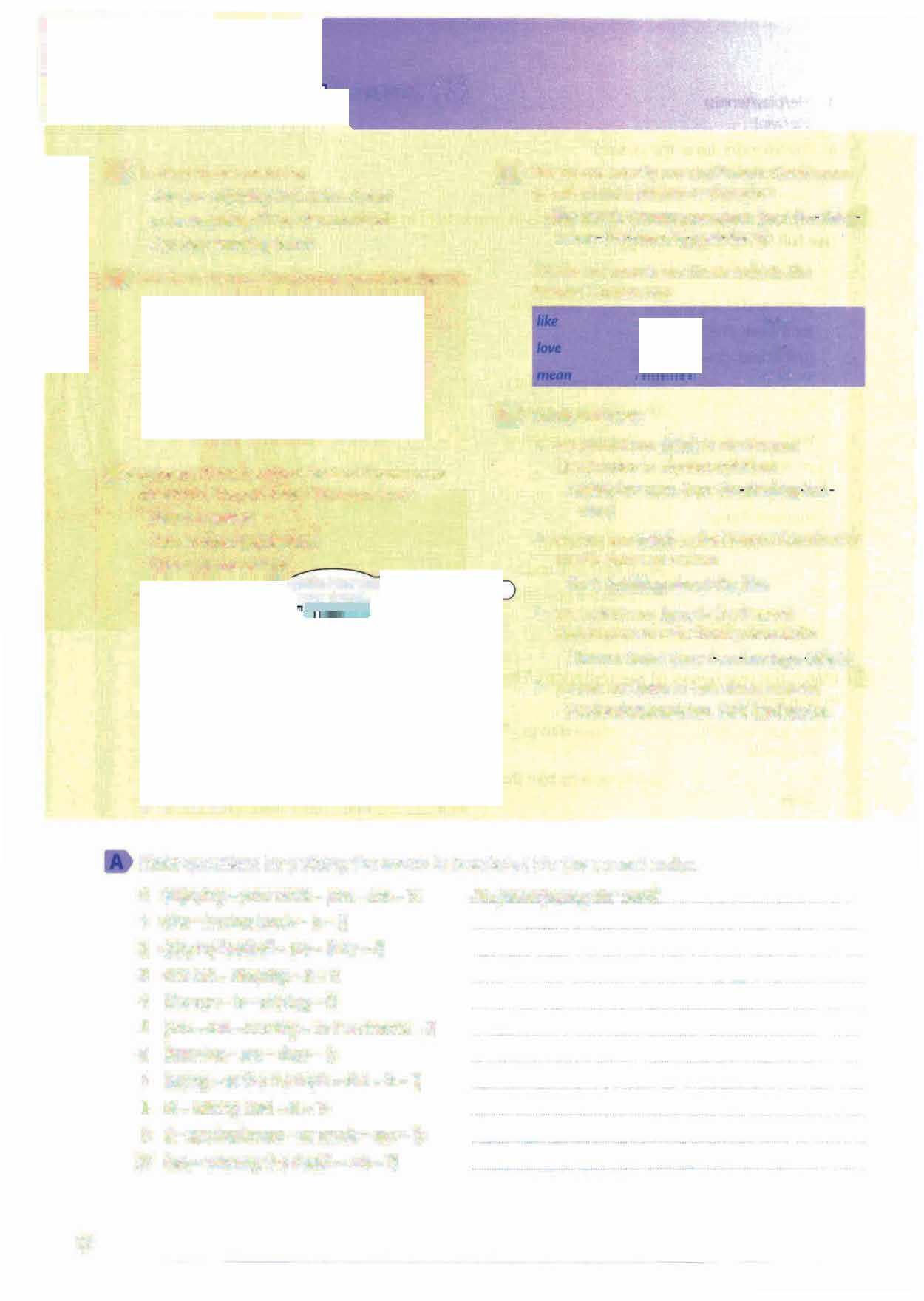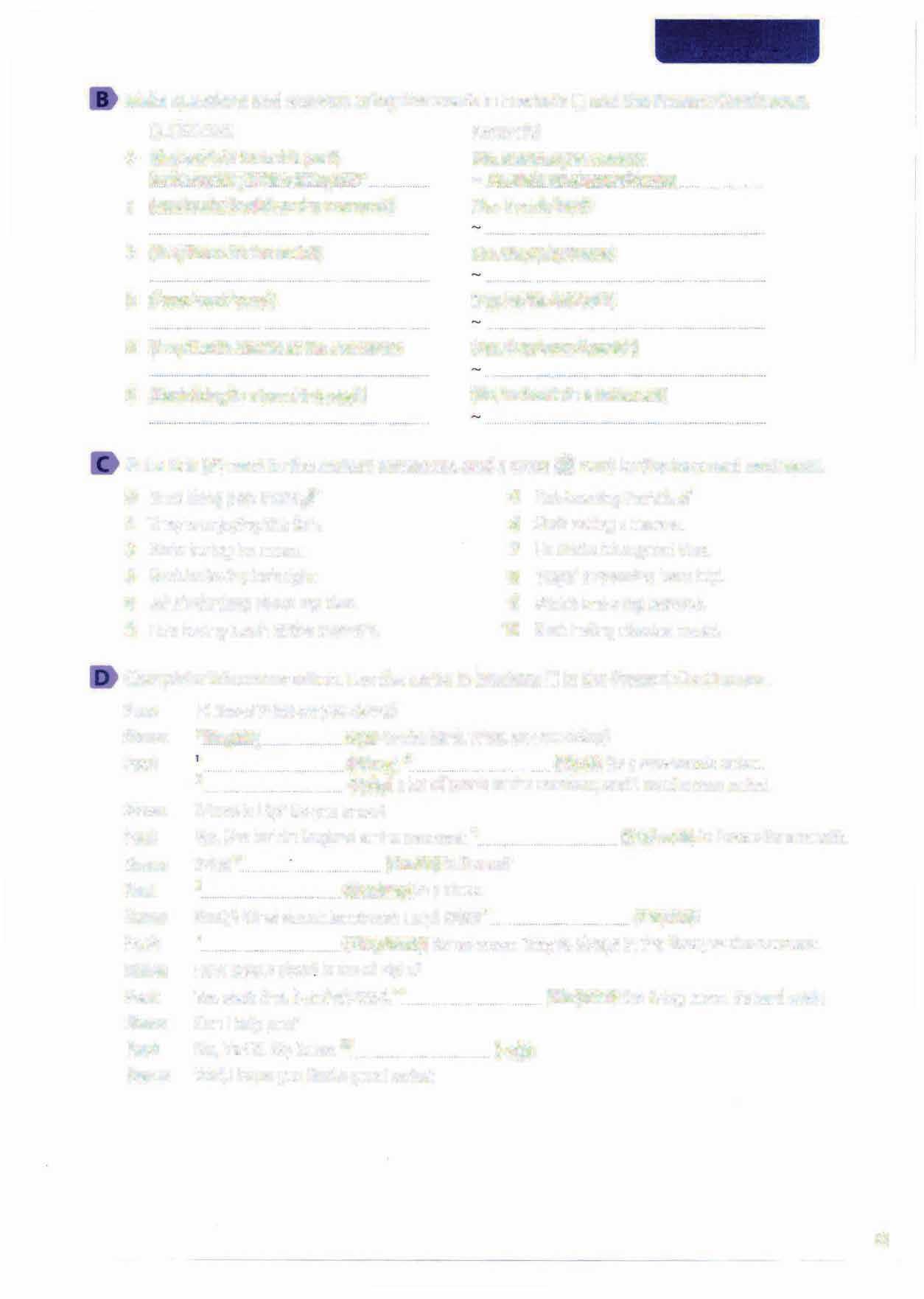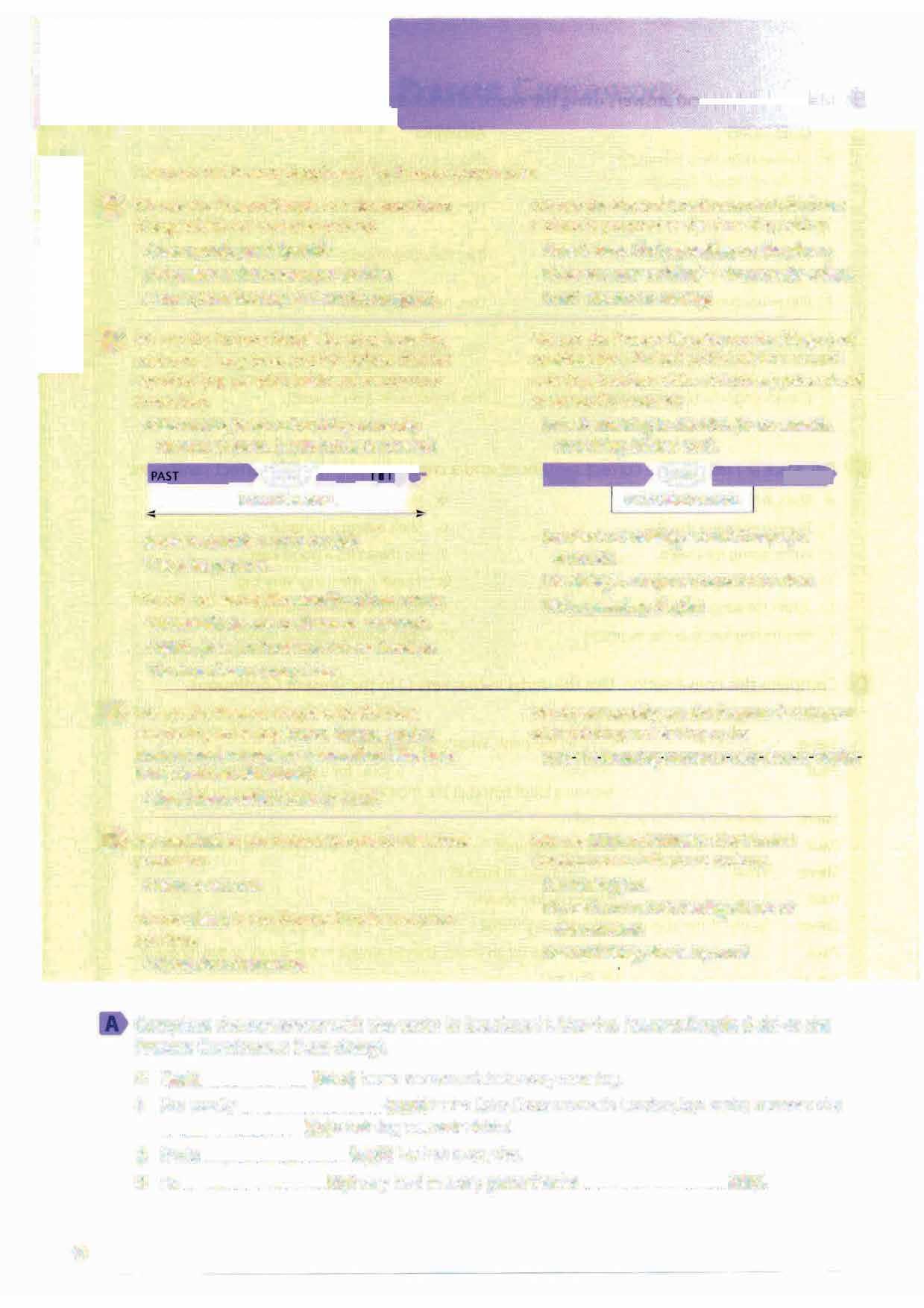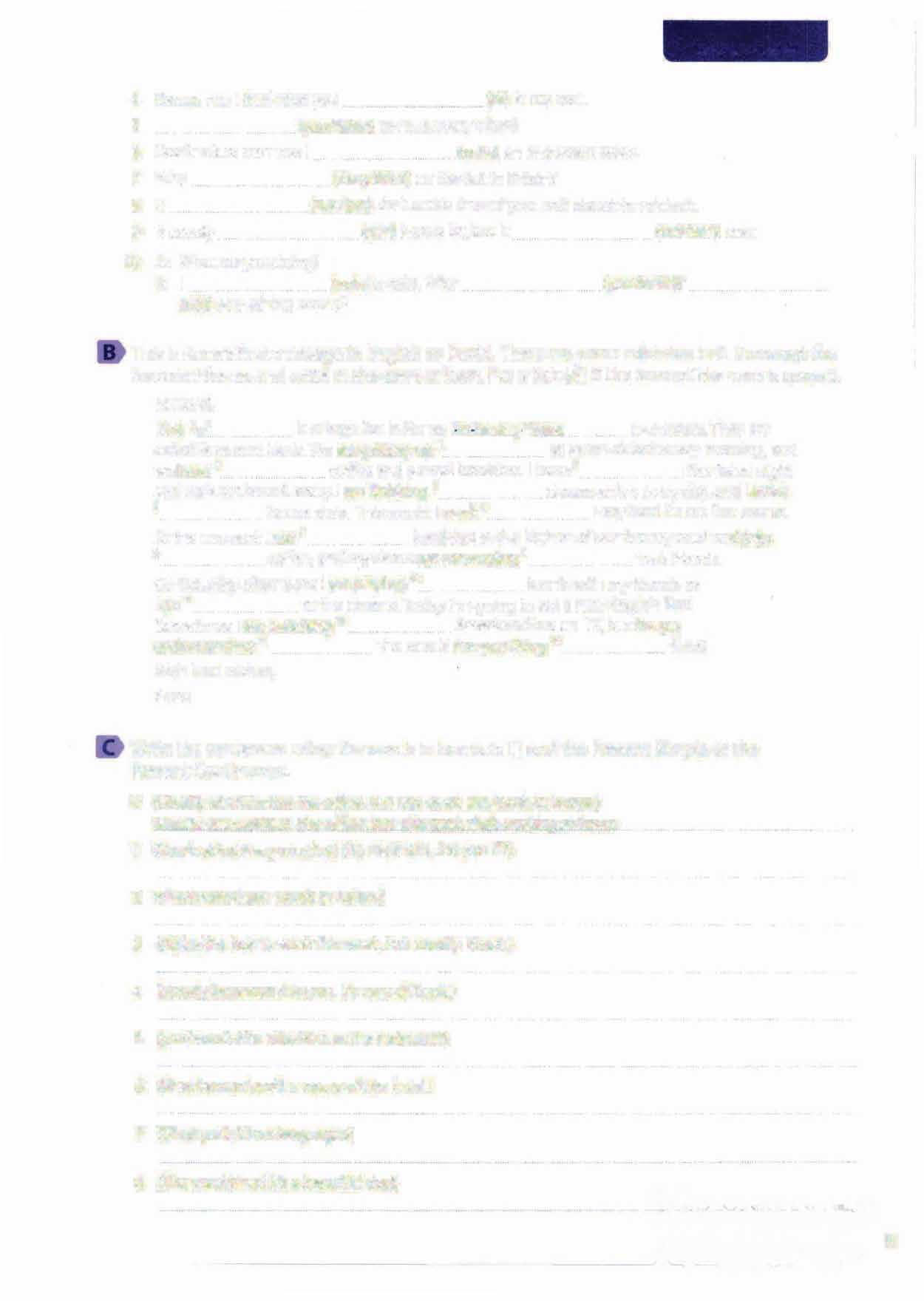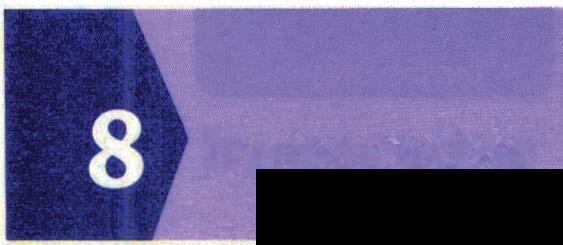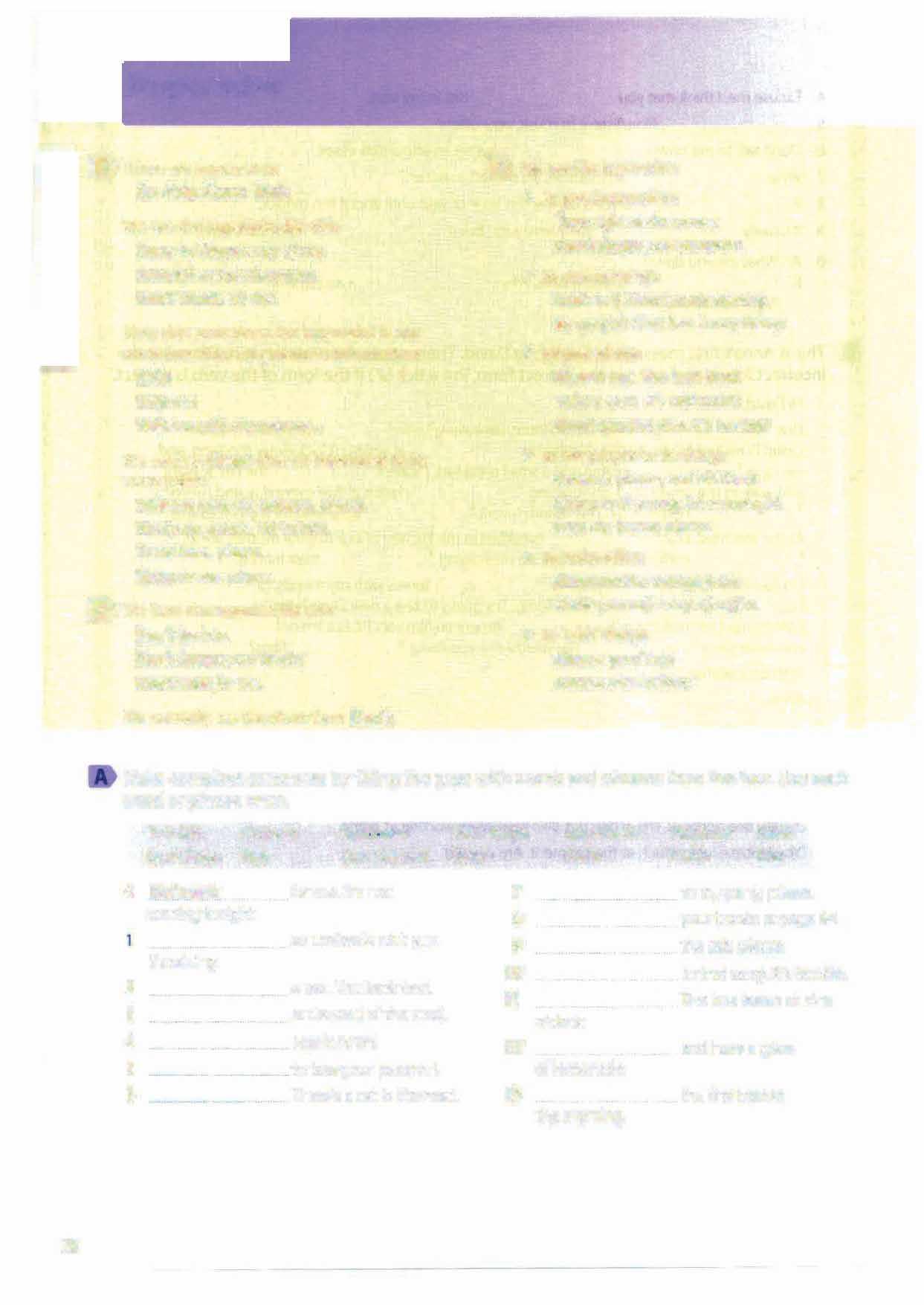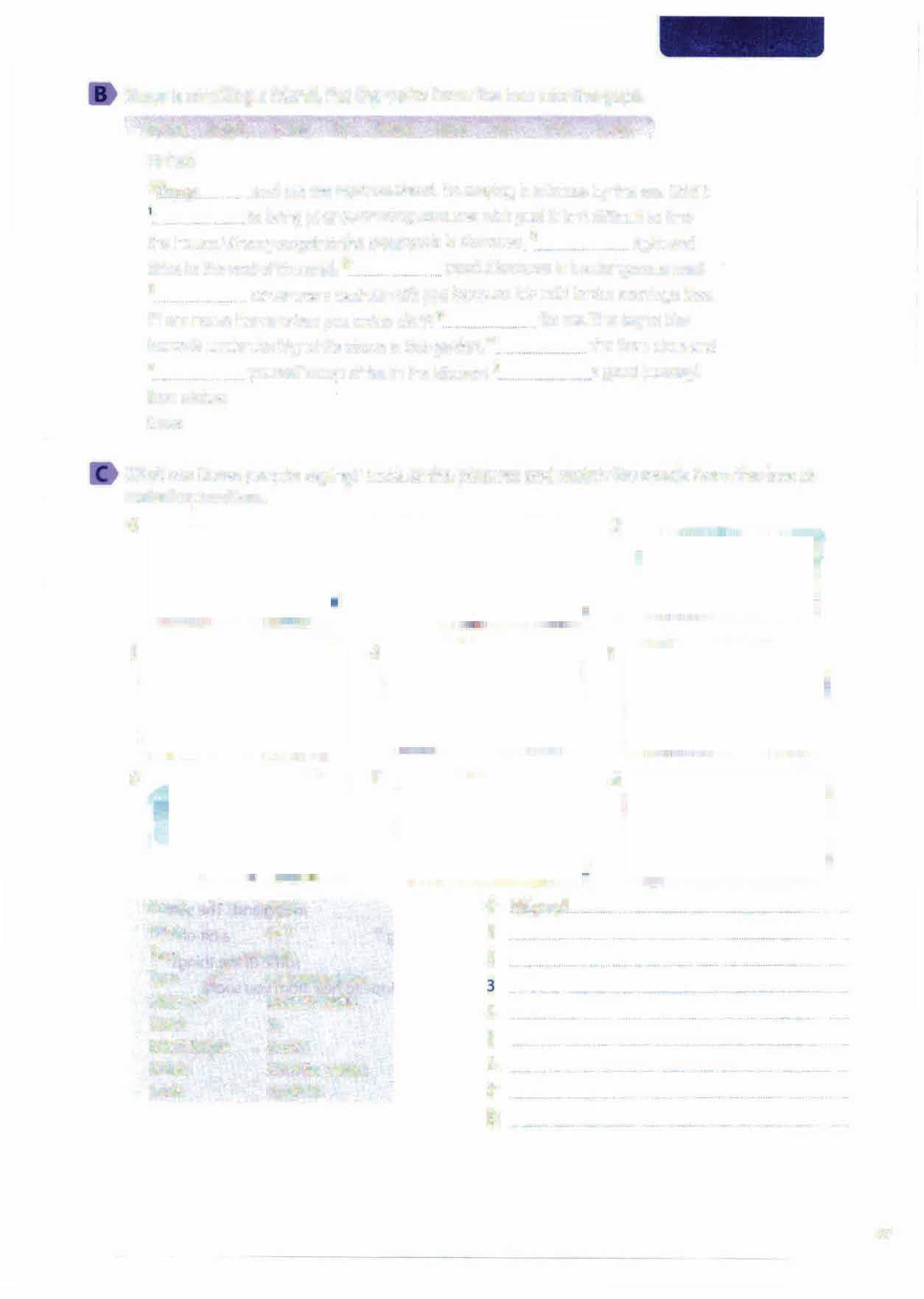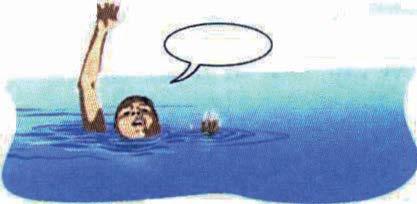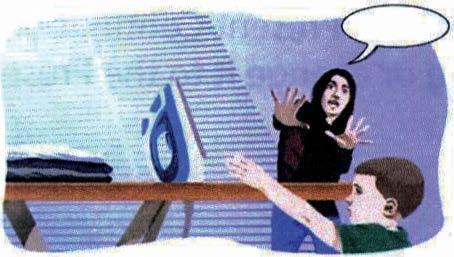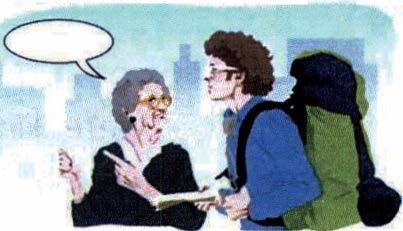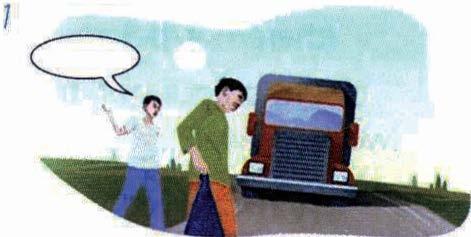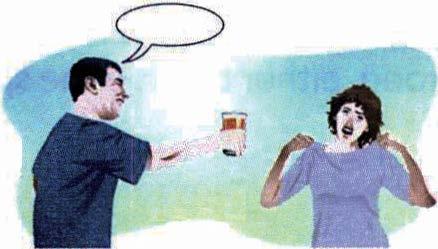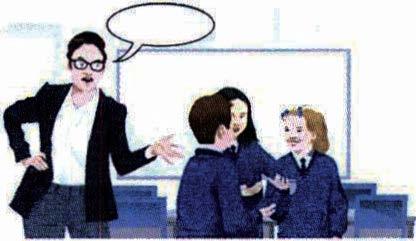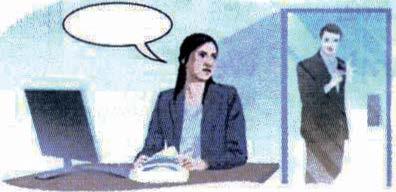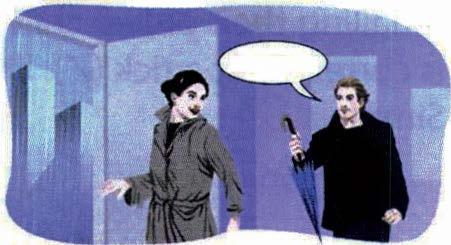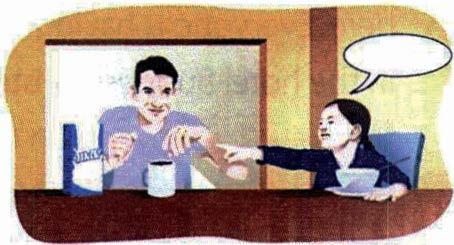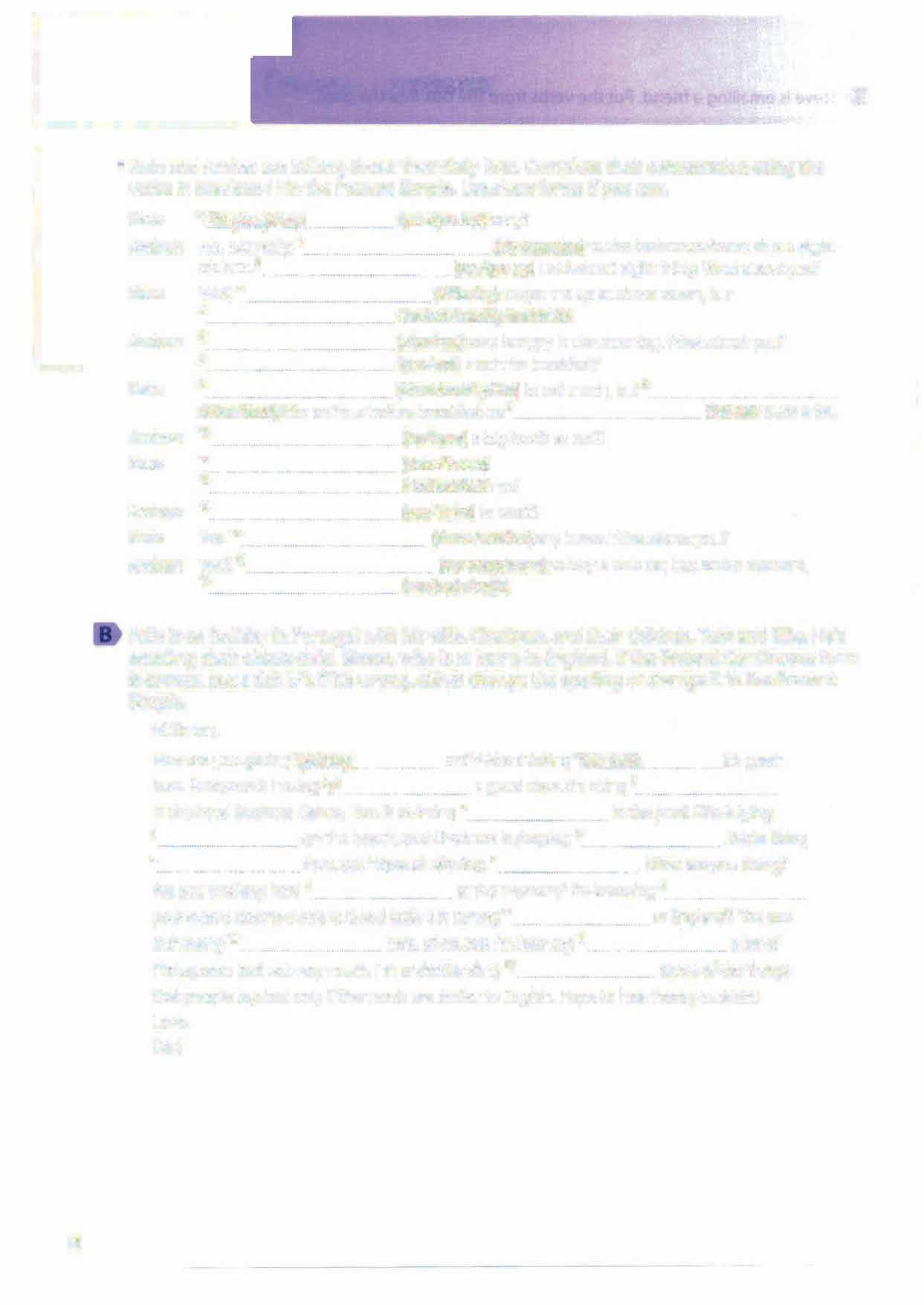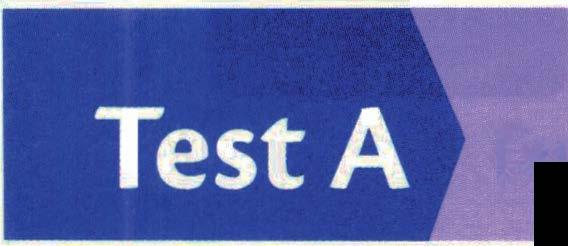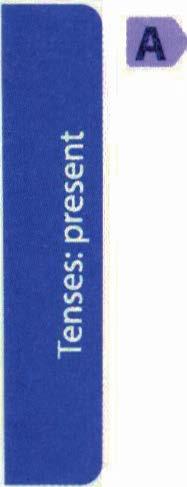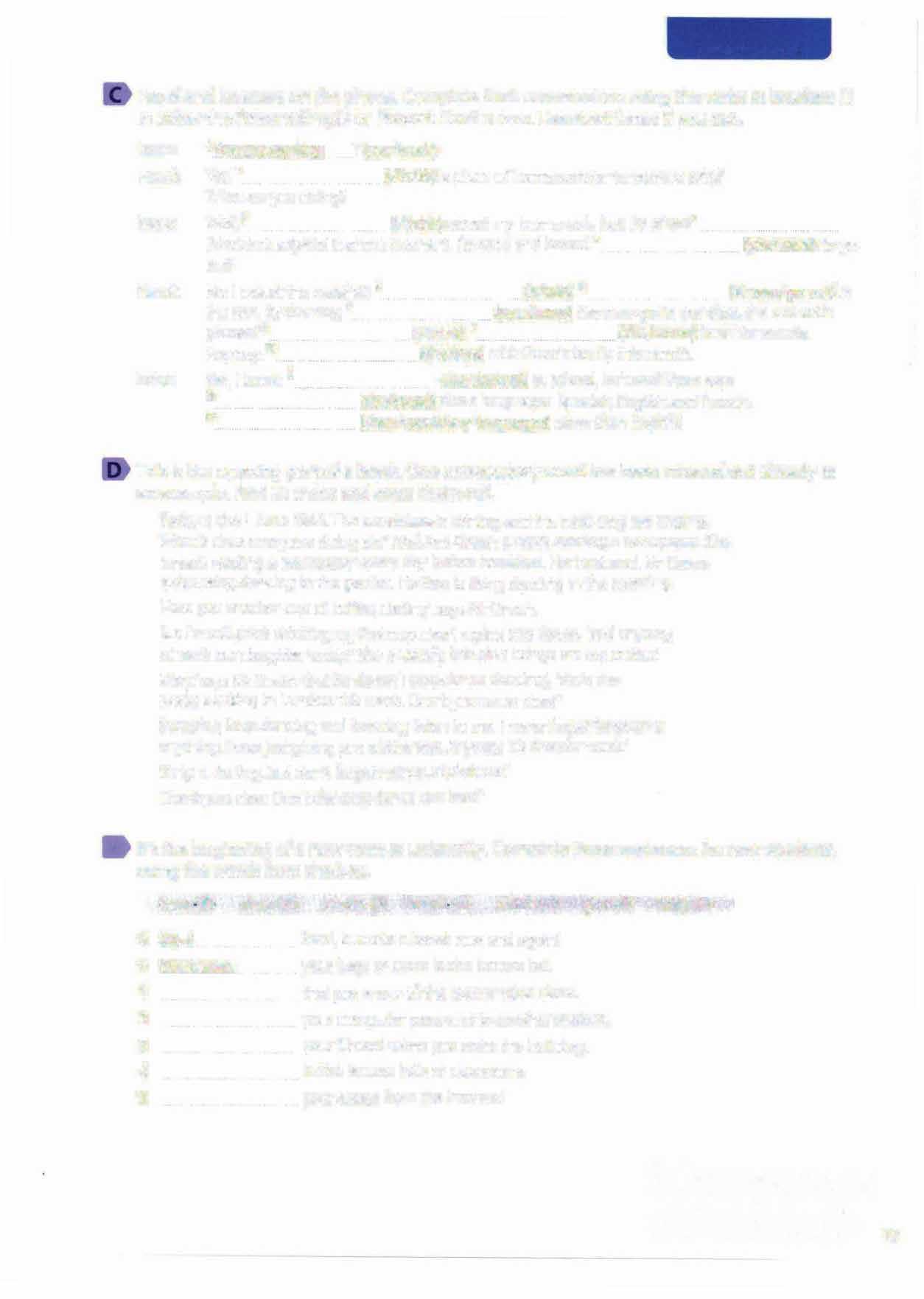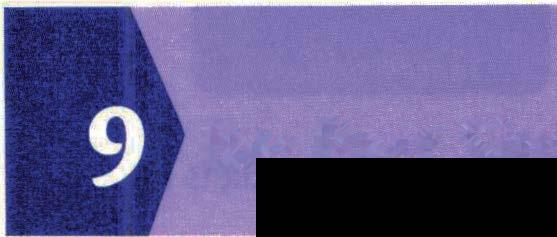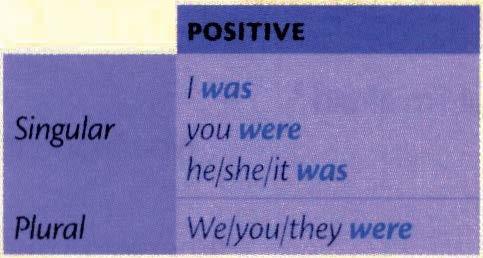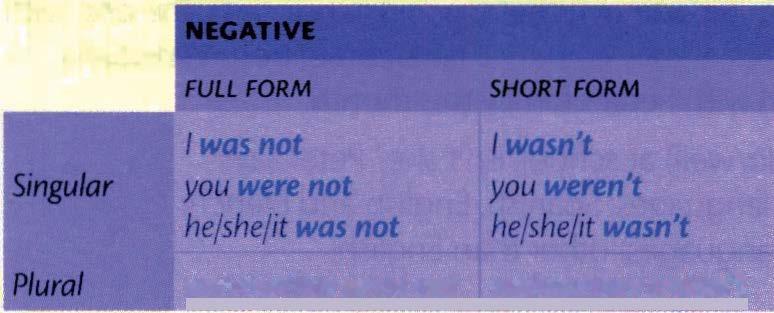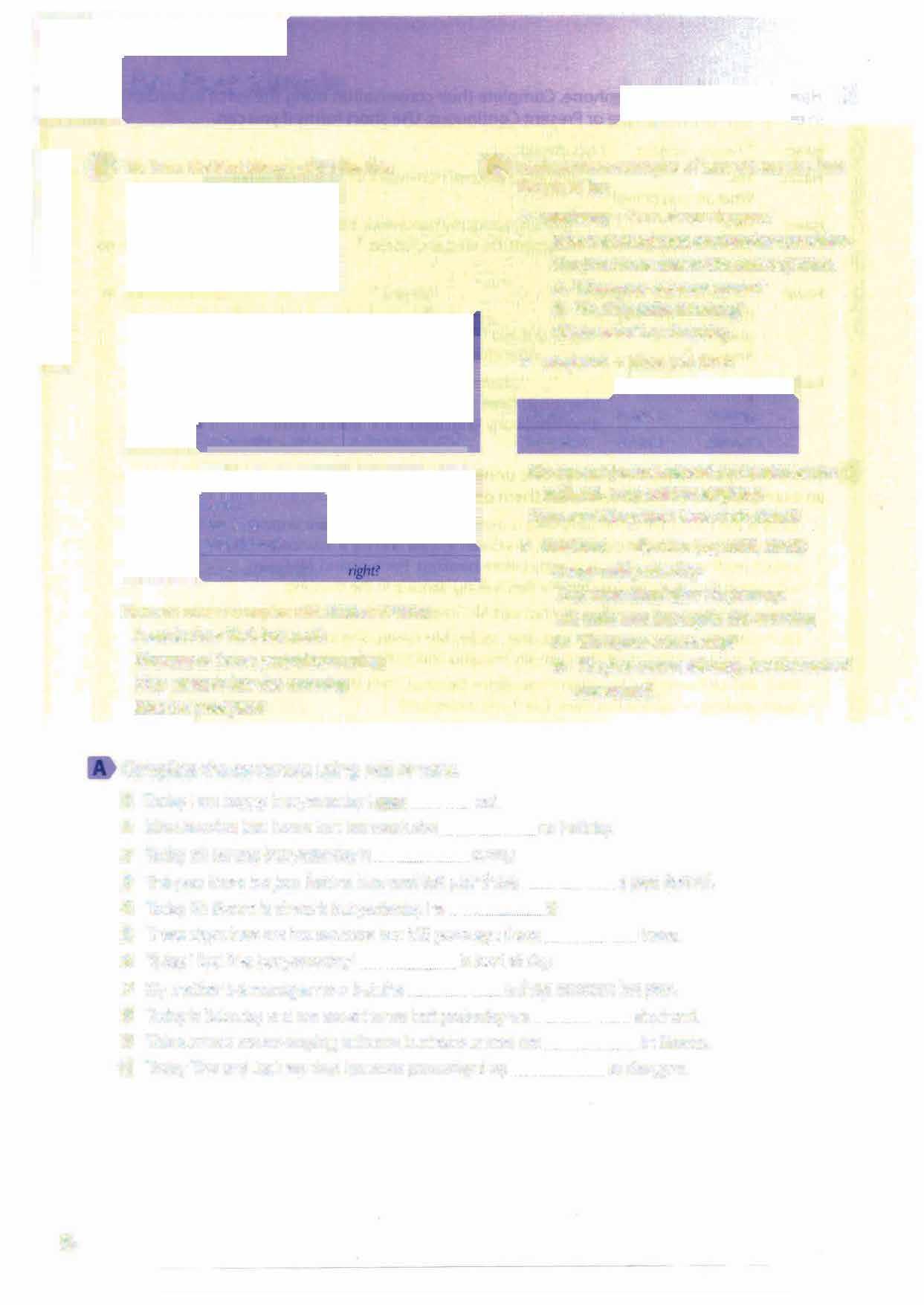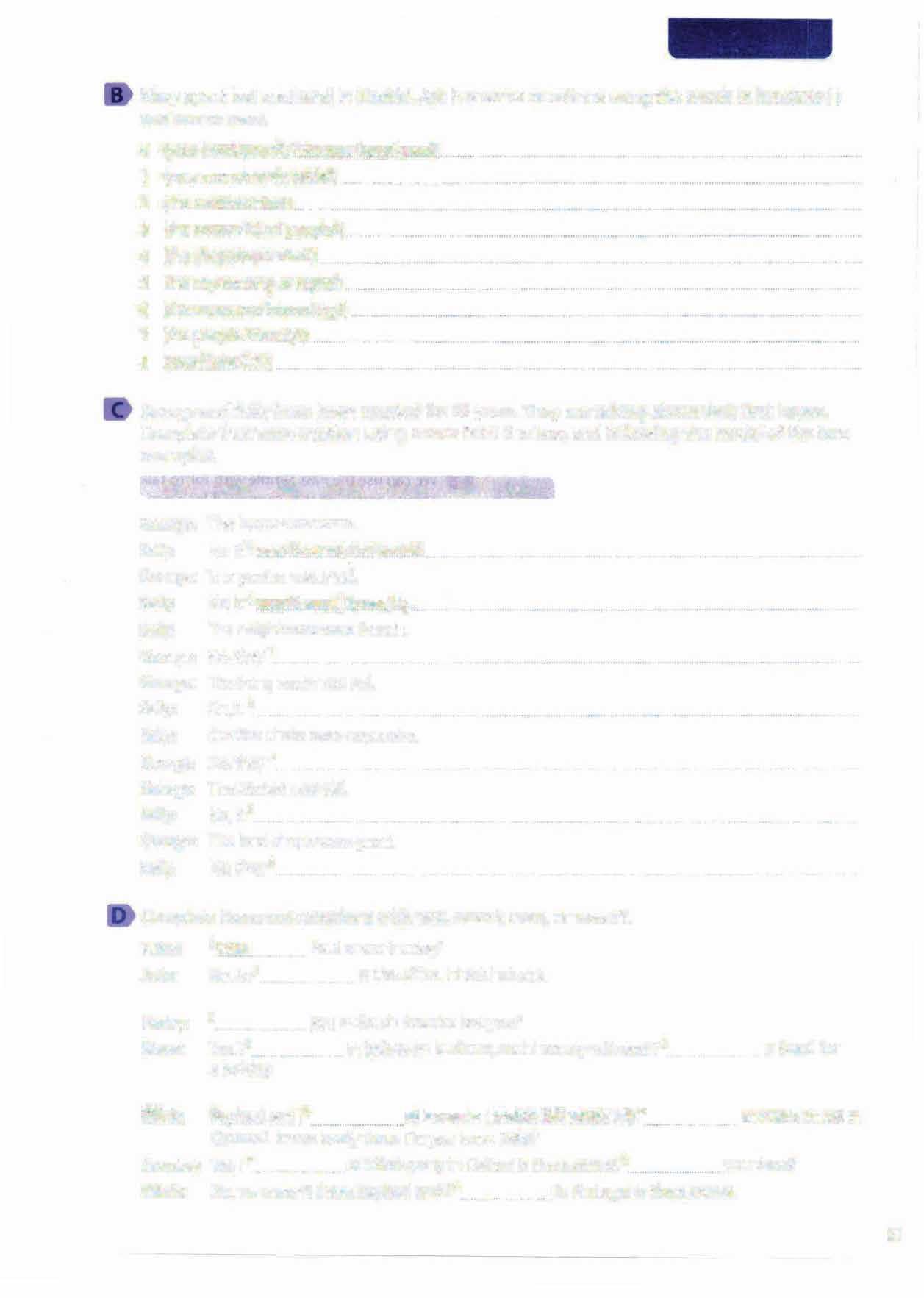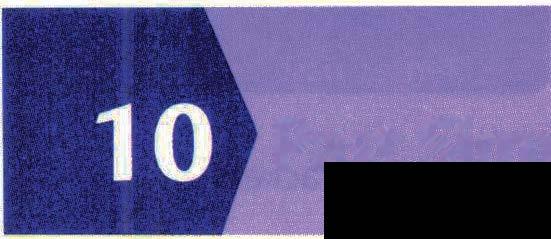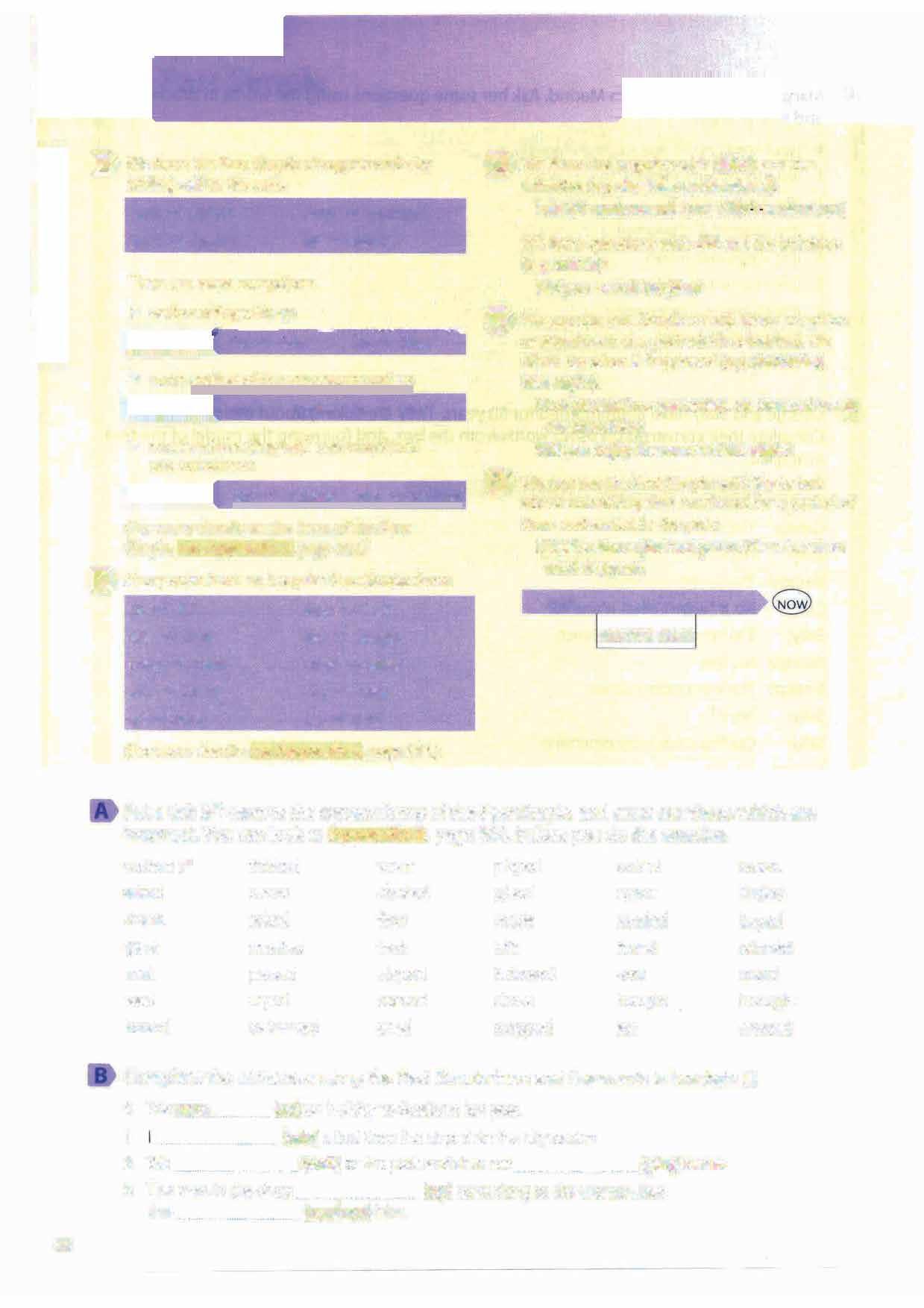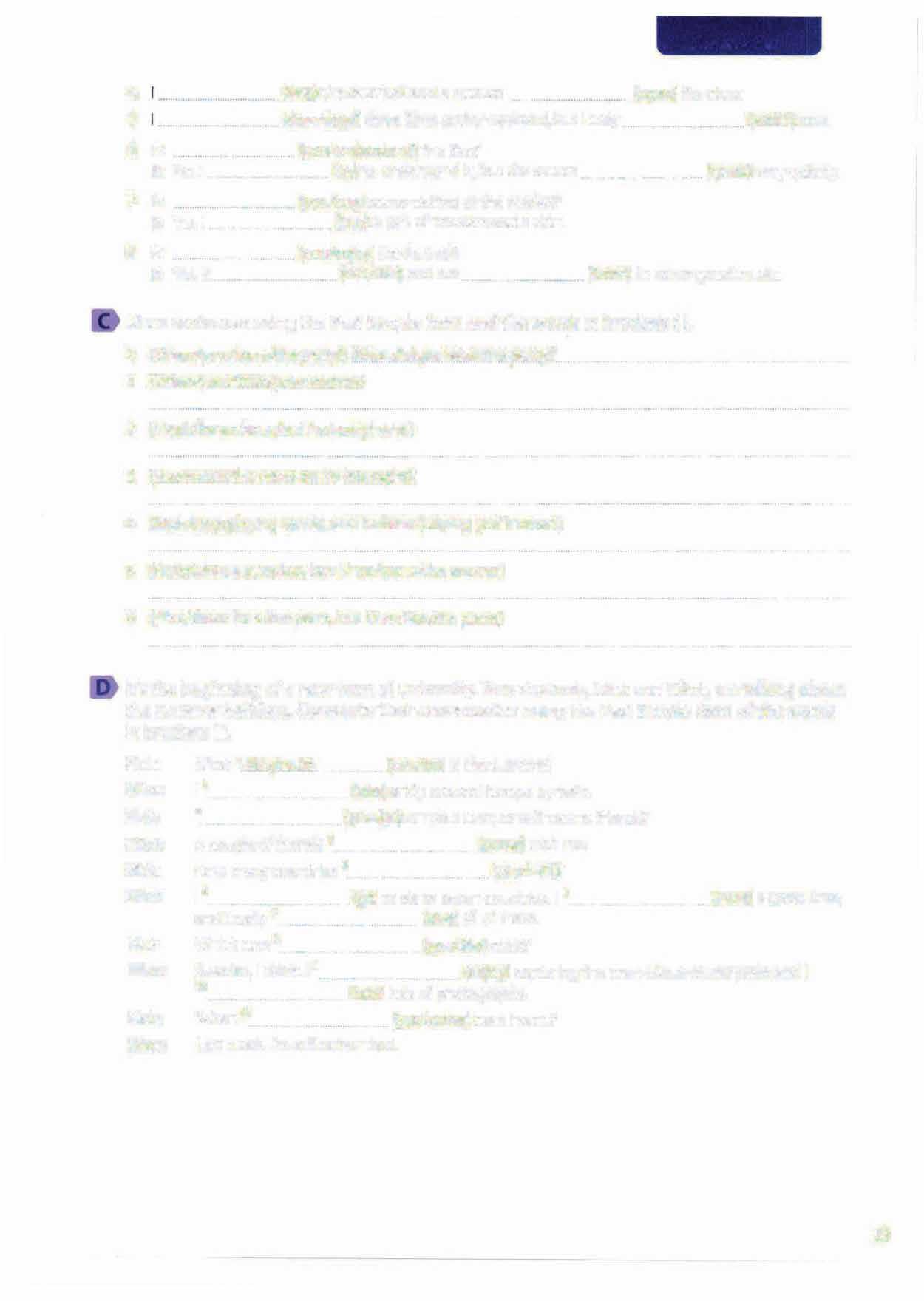Introduction
Oxford Practice Grammar isa series ofthree books, each written at the right level for you at eachstagein your study of English. The series is intended for your use either in a classroom or when working independently in your own time.
The books are divided into units, each of which covers an important grammar topic. Each unit starts with an explanation of the grammar and this is followed by a set ofpractice exercises. Answers to the exercises are given at the back of the book.
You may want to choose the order in which you study the grammar topics, perhap�going first to those giving you problems. (Topics are liste� in the Contents page at the front of each book and in the Index at the back.)
Alternatively, you may choose to start at the beginning of each book and work through to the end.
Exam practice
The first level in the series is Oxford Practice Grammar - Basic. This is suitable for elementary to pre-intermediate learners, and those working for the Oxford Test of English and Cambridge A2 Key and B1 Preliminary exams. The second is Oxford Practice Grammar - Intermediate for students who are no longer beginners but are not yet advanced in their use of English. It is suitable for those studying for the Oxford Test of English and Cambridge B2 First exam. Oxford Practice Grammar - Advanced is for those who have progressed beyond the intermediate level and who wish to increase their knowledge of English grammar and become more confident when using it. It helps students preparefor the C1 Advanced, C2 Proficiency, TOEFL, IELTS, and other advanced-level exams.
Oxford Practice Grammar - Basic is written for elementary to pre-intermediate students ofEnglish.
Grammar topics are explained simply and clearly and you are given lots of opportunity to practise.
Each new topic is presented on a left-hand page and the practice section follows on the same page or the facing page. You can therefore look across to the explanation while you are working through the exercises.
Appendices at the back of the book summarize how to form plurals of nouns, verb endings, comparative forms of adjectives, and adverbs. They also include a table of irregular verbs.
An exit test provides an opportunity for more practice, and prepares you for OxfordPractice Grammar - Intermediate.
There is an interactive Oxford Practice Grammar website at www.oup.com/elt/practicegrammar.
Key to symbols
The symbol / (oblique stroke) between two words means that either word is possible. We put does before he/she/it means that We put does before he, We put does before she and We put does before it are all possible. In exercise questions this symbol is also used to separate words or phrases which are possible answers.
Brackets ( ) around a word or phrase in the middle of a sentence mean that it can be left out. She said (that) she lived in a smallflat means that there are two possible sentences: She said that she lived in a smallflat and She said she lived in a smallflat.
The symbol N means that there is a change of speaker. In the example When didjasmine go to India? "' InJune. the question and answer are spoken by different people.
The symbol + in an exercise indicates that a sample answer is given.
DHereare some examples ofbe in the
DWeuse be: Present Simple:
This is my brother. He's ten years old. I'm a student. These are my books.
.,. to saywho weare:
I'm Steve and this is my friend William. We're from Scotland. They aren't at home. They're at the theatre.
D We form the Present Simple ofbe like this:
I'mJessica and these are my sisters This is Amber and this is Penelope. Amber and Penelope are doctors. we'rw youre youoren't he'sh It sn t
.,. to talk about the weather: It's cold today.
It's a beautiful day. It's usually hot here It isn't very warm today.
.,. to talk about the time: It's ten o'clock. It's halfpast four. You're late!
.,. to talk aboutplaces: weoren't youarent theyarent
D In speech, we usually use the short forms: She's my sister. He's my brother. I'm from Italy. They're German.
Milan is in the north of Italy. John and Mary are in Yorkshire.
.,. to talk about people's ages: My sister is six years old.
Maria is from Brazil. She is writing about herself and her family. Put full forms of be in the gaps.
• larn a student from Brazil. 4 20 yearsold.
• My parentsare riot . (not) rich. 5 My little brother two.
1 My father a teacher. 6 Myolderbrothers ... (not)students.
2 My mother (not) Brazilian. 7 They ... in the army.
3 She from America. 8
Now fill these gaps. This time, use short forms of be. It often very hot in Brazil.
+ I :m ............ a doctor. 5 It (not) cold today.
+ I m.r.1.0.t. .. (not) a bankmanager. 6 It . eight o'clock.
1 She .... ..... (not) a teacher. 7 We from Paris.
2 He . ............... a student. 8 We . ....... .. ... (not) from Bordeaux.
3 They.................. ... . at home. 9 You ...................... (not) 21 yearsold.
4 They ......... ......... (not) in the park. 10 1 .............. ....... ..... 24yearsold.
Choose wordsfrom the box to put in the gaps.
He's She's n,ey're It's(x2) are is We isn't
+ MyparentsliveinScotland.Ih�y·.r� ...... teachers.
1 NewYork inEngland. .. .... inAmerica.
2 Paul fromGermany. German.
3 Mysisterisadoctor. . ............ 30yearsold.
4 .. .. sixo'clock!.......... .......... arelate.
5 Lookatthetime!ChrisandMary ..... .... ... late.
Look at these pictures. These peopleare sayingwho they are. Write sentences using thejobs from the box.
apopstar afarmer abankmanager afoo,baller adentist adoctor a13oliceofficer anartist ateacher afilmstar ascientist aphotographer
names: J'tJ'lPaqloandthisi?Fed�rico. nationality: We're.fr:-omItaly, jobs: I'ma policeofficerandF.edericoisafootballer. names: nationality: jobs: names: nationality: jobs: names: nationality: jobs: names: nationality: jobs: names: nationality: jobs:
Paolo Federico
Maria Pedro Australia() Ill >.---'
\ Tomoko India Akira Rajiv lkram
DWeuse be:
.,. totalkabouthowwefeel:
I'm happy. They're sad. They're bored. She's tired. We're hungry I'm thirsty
He isn't afraid. They're cold.
.,. togreetpeople:
William: Hello. How are you?
Jasmine: I'mfine thanks. How are you?
.,. toapologize:
I'm sorry I'm late.
.,. todescribethings:
It isn't expensive. It's cheap.
It's an oldfilm. It isn't very good. These photos are bad!
Forother uses ofbe, see Unit 1.
DWeuse there + betotalk about theexistence ofsomething.There + becanbeusedtotalk aboutwherethingsare:
There's a supermar�in this street. There is a washing machine ,n theflat. There aresomegoodcafes in thecentre ofthetown.
DWealsousethere+ betotalkabout when thingshappen:
There is a bus to London at six o'clock. There are taxis, but there aren't any buses on Sunday.
There isn't another train to Manchester today
We formquestionswith be inthePresent Simplelikethis:
Herearesomeexamplesofquestionsusingall theformsof be:
Am I late for thefilm?
Are you 20 years old?
Is he at home now?
Is she French or Italian?
Is it time to go home?
Are we ready to leave?
Are you both at university? Are they in London today?
A Make sentences about the pictures using the words from the box. Use He/She/Theyand the Present Simple of be.
Use there+ the correct form of beto say what we can and cannot find in the town ofSmallwood.
• (a cinema:/)
• (ariver:X)
• (restaurants: 10)
1 (acastle:/)
2 (baker'sshops:2)
3 (azoo:/)
4 (banks:6)
5 (aluxuryhotel:/)
6 (atheatre:X)
7 (newsagents:6)
8 (manytourists:X)
There·� acinema.
Th�re:i\:mJ ......... ariver.
Ther�arn tenrestaurants.
... a castle.
_........................... .... twobaker'sshops.
azoo.
sixbanks.
a luxury hotel.
a theatre.
sixnewsagents.
•
...manytourists.
Write questions by putting the words in brackets ( ) in the correct order.
+ (thirsty-you-are)A.r.eyou thi.rsty? .
1 (ateacher-you-are)
2 (they-bored-are)
3 (is-afraid-he)
4 (she-tired-is)
5 (are-you-how)
6 (cold today-it-is).
7 (she-Spanish-is) .
8 (they-from London-are)
Complete the dialogues withthe correct forms of be.
Steve: This•is .Jasmine,mysister.
Tom: Hello,Jasmine. 1 youastudent?
Jasmine: No, I 2 adentist. I work inBrighton.
Mike: Howareyou, Ellie?
Ellie: I 3 fine, thanks.
Mike: 4 . you hungry?
Ellie: Yes. 5 . thereagoodrestaurant near here?
Mike: Yes.There 6 agood,andcheap, restaurant inWellingtonStreet.
Writequestionsusing the words in brackets ( ) and a form of be.
QUESTIONS
• (you/Spanish)?
1 (you/hungry)?
2 (she/yoursister)?
3 (I/late)?
4 (they/from America)?
5 (he/atennisplayer)?
6 (you/happy)?
7 (she/athome)?
8 (he/20)?
AreyquSpan.is�
ANSWERS
- No, I'm French.
-No,I'mthirsty.
- No, she'smymother.
- No,you'reon time.
- No,they'refromCanada.
- No, he'safootballer.
-No,I'msad.
-No,she'satwork.
-No, he's 18yearsold.
D We form the Present Simple like this:
I know the answer. She starts work at nine o'clock. We add -s after he/she/it:
Istart -hestarts IHve -shek
If a verb ends in -ch, -o, -sh, -ss or -x, we add -es after he/she/it:
Iwatch .. hewatches theygo - Itgoes youdo - hedoes wewash _,.. shewashes
If a verb ends in a consonant (b,c, etc.) +y (e.g. study), we use -ies after he/she/it:
Istudy .. hestudies Ifly -+ itflies
(For more examples, see Appendix 2, page 243.)
D Now look at these examples ofthe negative: I don't like that music. He doesn't listen to his teacher.
Wedo•lcnow. Youdonotknow. Theydonotlcnow.
Note that we say: He does not know. (NOT Hed6esi,6tki,6��s.)
DWe use the Present Simple: .. to talk about things that happen regularly: He plays golfevery day.
II- to talk about facts: She comesfrom France. (= She is French.) Greengrocers sell vegetables. I don't speak Chinese.
Add -s or -es to the verbs in the sentences if it is necessary. If it is not necessary, put a tick (.I) in the gap.
+ Heworks inabank.
+ They live./ inFrance.
1 Iwatch TVeveryday.
2 Shego toworkbycar.
3 Thefilm
tennisevery weekend. onholiday inAugust. ItalianandFrench her homeworkeverynight. workathalfpasteight.
Nowfinish these sentencesusing averbfromthebox. Use eachverb once. Remember to add -s or-es if necessary.
fly study finish � sell write drink
• Hee<!t?..._ toastforbreakfast.
1 coffeethree timesaday.
2 Myfather ., ..,.,. -··· ., anewlanguage every year.
3 She , toNew
atsixo'clock. .. fruitinashop.
Write sentences using the words in brackets ( ) and the negative form of the Present Simple. + (He/not/live/in Mexico) Hedoe�n·t live in M§xico .
1 (She/not/work/in a bank)
2 (I/not/play/golf) ....
3 (Paul/not/listen/tomusic)
4 (We/not/speak/French)
5 (You/not/listen/to me!)
6 (Mycar/not/work) ......
7 (I/not/drink/tea)
8 (Michelle/not/eat/meat) .... .
9 {I/not/understand/you)
Complete the interview using theverbsfrom the box.Use each verb once. leave start arrive � watch work brush eat have like drink go stop
Interviewer: How do you start the day, James?
James: Well,I •get . up at six o'clock. I getwashed and dressed, and 1 1 breakfast at seven o'clock. After breakfast, I 2 .. my teeth. 1 3 towork at eight o'clock.
Interviewer: When do you get to work?
James: I usually 4 . at my office at about halfpast eight. First, I 5 a cup ofcoffee, and thenI 6 work atjust before nine o'clock.
Interviewer: Wheredo youwork?
James: I 7 in a bank. I am a computer programmer. I 8 myjob. It's very interesting.
Interviewer: When do you eat lunch?
James: I 9 work and I have lunch at one o'clock. 1 10 .... •. . . a cup of tea at half past three.
Interviewer: When do you finishwork?
James: I n 12 the office at six o'clock. I eat dinner whenI gethome. Then I TVfor an hour or two.
Writefacts about Jasmine using the table and theverbs in brackets ().A tick (v") means that something istrue.A cross (X)meansthat something isnot true.
fFol"ASco�laAd / ft:ot"AEAglaAdX 1 inabankX ina shop./
• (come) She comes from Scotland.
1 (work) She 2 (live) She
3 (speak) 4 (like)
inaflat./ inahouseX in a bank.
French./ ItalianX 4 newfilmsX oldfilms./
Shedoesn't come from England She in a shop. She
DWeusethePresentSimple:
� totalkaboutfeelingsandopinions: -� .. I
I like pop music. I don't like classical music. She loves football!
Raphael wants a new car
I don't want a cup of tea, thanks. Hefeels sick
I don't think she likes her newjob
I don't know the answer. He doesn't understand me.
Forother usesofthe Present Simple, seeUnit3.
DWeform PresentSimplequestionslikethis:
NotethatweputdobeforeI/you/we/they:
Do you speak Spanish?
Do you work in the town centre?
Do they know the answer?
Weputdoesbefore he/she/it: Does he walk to work? Does Steve enjoy hisjob? Does she play the piano?
Notethatwesay: Does he walk? (NOT Does/<Je wt1�ks?)
Completethe sentencesusing the Present Simple form of the verbs from the box. Use each verbonce.
like nothave � feel think notlike want notunderstand
+ Shethinksthatfilms arefantastic! She lqves ... . films.
1 . ............ ...sick CanI haveaglassofwater, please?
2 Idon'tknowtheanswerbecause I . . . thequestion.
3 .. .. .. he'stired. Heworkstoohard.
4 We thatnewpainting.Wethinkit'sterrible!
5 IwanttocallJasmine,butI ....... ..... .. .... ... herphonenumber.
6 They'rethirsty They...... .. ...... somethingtodrink.
7 1 . ............. ..... .. ......... yournewcar. It's verynice.Wasitexpensive?
Write sentences about Peter using the information in brackets ( ). (./=like,././=love, X= not like, XX= hate)
• (tennis:X) tiedoesn'tl_iket�n.ni�, ..... ... 3 (hisjob://)
• (music:././) Helovesr:nusic. 4 (fishing: XX)
1 (coffee:/) He............. .............. ........................................ 5 (holidays://)
2 (films:X) He ..... ..... ..... 6 (golf:X)
QUESTIONS
Doyou livein London . DoesJohn play golf listen to music go to the gym drinkcoffee pla)·golf go to the theatre li¥ein London
ANSWERS
7 - Yes, I live in north London.
7 - No, but he plays tennis.
7 - Yes, I speak French.
7 - Yes, I like some programmes on TV.
7 - Yes, he listens to music in the morning.
7 - No, but he loves cats.
7 - No, I don't like films.
? - Yes, he hastwo cups in the morning.
? - No, but I have a motorbike.
? - Yes, he plays the piano.
7 - No, I prefer classical music.
? - Yes, I love musicals.
? - Yes, I read one book every week.
7 - No, but he likes running.
You are on holiday, and you are in a Tourist Information Centre. Ask questions using the table below.
8
Do )'et* Does tl:lesports cenue all the banks the m.1mber 38bus the restaurants theconcert the sightseeing tour the museum + QQY,QU s�11mapE?.Pf-the,: city? 1 2
the sportscentre
Cstop at the railway station? finishbefore 11 o'clock? start here? sellmapsoftl:lecity? change tourists' money intopounds? sell souvenirs? have a swimming pool? servetypical Englishfood?
DWeformthePresentContinuouslikethis:
HerearetheformsofthePresentContinuous:
lameating. YouarefClting. He/She/ItIS .ad.
Weareeoting. Youareeating. Theyareeating.
DD Butnoticetheseirregularspellings: ........... .,......,,.. ,.,....,. slt-+slaf"I
swim - swimming dance - dancing sltine-+slti travel - travelling write - writing
(Formoredetailsonthespellingofthe -ing form,see Appendix 2, page243.)
WeusethePresentContinuous:
Iamnoteatmg. Youarenoteating, He/She/It,snoteating. Wearenoteatrng. Youarenoteating. Theyarenoteating.
We'refGdn& Youremdng. They'retati"& I'm noteating. Youarmteotmg. HeISltteating. Wearmteating. Youare,r'teating. Theyaren'teating.
Tomakethe-ingform,weadd-ingtotheverb:
listen - listening play - play,ng worlc - worlcing read -reading
DIii> totalkaboutactionsandsituationsin progressnow:
Iii> totalkaboutactionsandsituationsin progressaroundnow,butnotexactlyatthe ----momentwespeak:
Look at the pictures and the words in brackets ( ). Decide what is happening (.I) and what isn't happening (X). Then write positive or negative sentences.
+ (George/eat/breakfast) (George/sleep) (They/work) (They/sit/in the garden)
2 (I/study/music) (I/learn/Japanese)
X Georgeisn'teatingbreakfast ./ Georgeissleeping.
3 (He/play/tennis) (He/win)
4 (We/spend/a dayattheseaside) (Thesun/shine)
Completethe postcard usingthewords in brackets () in the Present Continuous. Use full forms (e.g. is sitting).
Dear Peter,
Jenny and 1•t:1re �taying .. . ......(stay)here foraweek.The sun 1 (shine)andit's veryhot.We
2 (sit)onthe beachand I
3
We 4 we're bothtired.We 5 (drink) anorangejuice. .. (not/swim) because (watch)the boatson thesea atthe moment.They 6 (travel) fast, butIcansee 15or 16.Jenny
7 (read) her book,and I
8 (write) all thepostcards!
JamesandJenny
C Match the two halves ofthe sentences. Then put in the correct form ofthe verb in brackets ( ).
• Myauntisstaying (stay) withus this week
1 (go)towork by bikethis week
2 Myfather (take)some medicine
3 Annaisnotintheofficethisweek
4 Olivianeedssomeexercise
5 We (eat)in arestaurant thisweek
6 Charlottedoesn'tfeelwell
7 Tom (study) morenow •d 2 3 4
a soheisfeelingquitedrowsy.
b becauseshe athome. . (work)
c soshe hometoday. (stay) at
e so I am sleeping in thelivingroom.
e becauseourovenis broken.
f becausehewantstogetagoodmark.
g because I haven'tgotmoneyforpetrol.
h soshe (walk)toschool this week. 6 7
D lookatthesequestions:
Areyouenjoyingthatdrink,Anna? IshewatchingTVatthemoment? Aretheyworkinghard?
D Weform PresentContinuousquestionslikethis:
D Herearethreecommon PresentContinuous questions.Theyallmean'Howareyou?': How'sitgoing? Howareyougetting on? Howareyoudoing? Hello. Howare you doing?
D
Wedonotusually usethe PresentContinuous totalk aboutopinionsorthoughts: Iliketennis.Iknowyoursister. (NOT I'mWdng termis.6'mkl'lowingyo"rsister.)
Wedonotusuallyusetheseverbsinthe Present Continuous:
D thinkandhave: hate know want
.,. wecannotusethinkinthe Present Continuoustoexpressopinions: Ithinkhe'snice. (NOT ,,,,, tl,inkit1g1,e's ffltt;)
.,. wecan usethinkinthe PresentContinuous totalk aboutanaction: She'sthinkingaboutthefilm.
.,. wecannotusehavein the Present Continuoustotalk aboutpossessions: Ihaveaticket. (NOT ,' aml,a11i1,gaticket.)
.,. wecan usehavetotalkaboutactions: I'mhavingbreakfast.He'shavingfun.
Make questions by putting the words in brackets ( ) in the correct order.
+ (enjoying-yourwork-you- are-?)
1 (she-having lunch-is-?)
2 (playingfootball -are -they-?)
3 (the cat-sleeping-is-?)
4 (thesun-is-shining-?)
5 (you-are-coming -tothe cinema -?)
6 (listening-are-they- ?)
7 (eating-atthemoment-she-is-?)
8 (it-raininghard- is-?)
9 (I-getting better-attennis-am-?)
1O (are-winningthe match-we-?)
Areyou enjoying yourwork'?
Make questions and answers using the words in brackets () and the Present Continuous.
QUESTIONS
+ (she/work/inPeruthisyear?) Is�hew.9rkir.iginf'en-!fh)syear?.
1 (you/study/Englishatthemoment?)
2 (they/listen/totheradio?)
3 (Peter/wash/now?)
4 (they/live/inMadridatthemoment?)
5 (David/sing/inabandthisyear?)
ANSWERS
(No,she/study/inMexico)
-No,�he's!:?tucjyingin l\:1exicp_ . ......................
(Yes,I/work/hard)
(No,they/play/music)
(Yes,he/have/abath)
(Yes,they/learn/Spanish)
(No,he/work/inarestaurant)
Put a tick (.I) next to the correct sentences, and a cross (X') next to the incorrect sentences.
• She'slikingpopmusic. X
1 They'reenjoyingthefilm.
2 We'relovingicecream.
3 She'sbelievinghe'sright.
4 John'sthinkingaboutmyidea.
5 He'shavinglunchatthemoment.
• He'slearning French.,/
6 She'seatingabanana.
7 Hethinksit'sagoodidea.
8 'Huge'ismeaning'verybig'.
9 MickisknowingJasmine.
10 She'shatingclassical music.
Complete this conversation. Use the verbs in brackets () in the Present Continuous.
Paul:
Steve:
Paul:
Steve:
HiSteve! Whatareyoudoing?
•rmgoing (I/go)tothe bank. Whatareyoudoing?
3 (I/shop) 2 . .. .. ....... . (I/look) foranew tennisracket. (I/play)alotoftennisatthemoment,andIneedanewracket.
Whereis Lily?Doyouknow?
Paul: Yes. Sheisn'tin Englandatthe moment. 4 (She/work)in Franceforamonth.
Steve: What 5 (she/do) in France?
Paul: 6 (She/sing)in ashow.
Steve: Really?WhataboutJacoband Lucy?What 7 (they/do)?
Paul: 8 (They/study)for anexam.They're alwaysinthe libraryatthemoment.
Steve:
Paul:
Steve:
Paul:
Steve:
Howisyour sister7 Issheallright?
Yes, she'sfine, butshe's tired. 9
Can Ihelpyou?
No,it'sOK. Myfather 10 _
Well,Ihopeyou find agoodracket.
(We/paint) thelivingroom.It'shardwork. (help)
,,.sent Continuous
Comparethe PresentSimpleandthe PresentContinuous:
D Weusethe PresentSimpletotalkabout facts
WeusethePresentContinuoustotalkabout {thingswhicharetrueatanytime): actionsinprogressatthetimeofspeaking: Anna speaks good Spanish. Anna's busy. She's speaking on the phone. Journalists write newspaper articles. I come from Norway.(= Iam Norwegian.)
D Weusethe PresentSimpleforsituationsthat existoveralongtime, andforactionsthatare repeated(e.g.people'shabits,oreventsona timetable):
Mike works for an advertising company. He lives in Paris.(= HishomeisinParis.)
HE LIV£S IN PARIS
Jasmine travels a lot in herjob.
I do a lot of sport.
Wecanusewordslike usually, often, every: We usually go out to dinner at weekends I often go to football matches on Sundays. The buses leave every hour.
D Weusethe Present Simplewiththinking andfeelingverbs(e.g.know,forget,notice, understand, recognise, remember,like, love, hate, want, prefer,need):
I don't know which train to catch.
D Weusehaveinthe PresentSimpletotalkabout possession:
I have a new car.
Weuse thinkin the PresentSimpletoexpress opinions: I think she's interesting.
What are you writing? ,., An essay for college. Look! The bus is coming.
Weuse the PresentContinuousforthingsthat continueforalimitedperiodoftimearound now(e.g.holidays, visits, temporaryjobs, school or university courses):
John is working in the USA for sixmonths. He's living in New York.
HE'S LIVING IN PARIS
Jasmine's travelling around Europe for a month.
I'm doing a one-year course in tourism. We're painting the flat.
Wedonotusuallyusethe PresentContinuous withthinkingandfeelingverbs: NOT I'm kl'lewil'lgsemeene �vl,e lives ;,, 'lenie:e.
Weusehaveandthinkinthe Present Continuoustotalkaboutactions: I'm having fun.
He can't come, he's having dinner at the moment.
I am thinking about my work.
Complete the sentenceswith the verbs in brackets ( ). Use the Present Simple (Ido) or the Present Continuous (Iam doing).
+ I [�g.Y.� (leave)home at seven o'clockevery morning
1 She usually . .. (work)in the Sales Department in London, but at the moment she ....... ................................. (do) atraining course in Bristol.
2 Emilia .......... ............................ (wash)her hair every day
3 He ................ ............. ... (try)very hard in every game that he ......... .............. .............. (play)
4 Excuseme.Ithinkthatyou (sit)inmyseat.
5 (you/listen)tomusicveryoften?
6 Don'ttalktomenow. I
7 Why ... (write)animportantessay. (they/drive)ontheleft in Britain?
8 It (not/get) darkatthistimeofyearuntilaboutteno'clock.
9 Itusually
10 A: Whatareyoudoing? (rain)herealot,butit (not/rain)now.
B: I (bake)acake. Why (you/smile)? (I/do)somethingwrong?
This is Anna's first message in English to David. There are some mistakes in it. Cross out the incorrect forms and write in the correct form. Put a tick (wl') if the form of the verb is correct. Hi David, Ilive•,/ inalargeflatinRome.l'FAhai.•ing•have twosisters.Theyare called Rosa and Maria. Wearegettingup 1 atseveno'clockevery morning,and wehave 2 coffeeandasmallbreakfast.Ileave 3 theflat ateight andwalktothe university.Iamfinishing 4 classesatfive everyday,andIarrive 5 homeatsix.ThismonthIwork 6 veryhardformyfirstexams.
Atthemoment,Ieat 7 _ _ ... breakfastinthekitchenofourflatmymotherdrinks 8 coffee, andmysistersaremessaging 9 theirfriends.
OnSaturdayafternoonsIamplaying 10 tenniswithmyfriends,or Igo 11 tothecinema.Today,I'mgoingtoseeanewEnglishfilm!
SometimesIamwatching 12 . .. .. ... AmericanfilmsonTV,butI'mnot understanding 13 thewords!Areyouliking 14 films? Withbestwishes, Anna
Write the sentences using the words in brackets () and the Present Simple or the Present Continuous.
+ (Usuallyshe/work/atthe office,butthisweekshe/work/athome.) Usuallyshe worksatthe office, butthis week she's working at home
1 (You/not/eat/verymuch atthemoment. Areyouill?)
2 (She/know/threewordsinItalian!)
3 (I/take/thebustoworkthisweek,butusuallyI/walk.)
4 (I/study/Japanesethisyear.It'svery difficult.)
5 (you/watch/thetelevisionatthemoment?)
6 (I/not/remember/thenameofthehotel.)
7 (She/speak/threelanguages.)
8 (Thesun/shine/ It'sabeautifulday!)
